
Disclosure: This article contains affiliate links, meaning that when you make a purchase, I earn a small commission. For more information, see the site Disclaimer .

College essay don’ts: 37 Things to Avoid In a college essay
Knowing what not to write about in a college essay is just as important as knowing what to write about!
This post is all about college essay don’ts , including college essay topics to avoid and how not to write your college application essays.
It’s so important to know what NOT to write about in your college application essay. Whether you’re crafting your essay for the Common App or writing shorter college-specific essays, you need to know how not to write a college essay.
Choosing the wrong topic for your college application essays could mean that you don’t get admitted to your dream school or you miss out on scholarship money.
Since you really only have one chance to get it right, you need to know what topics to avoid in your college admissions essays, general college essay don’ts, and what other pitfalls to avoid when writing your college essays.
Essay writing may feel overwhelming and stressful, but knowing what not to do will help you write a great college essay!
What not to write in your college application essay
So you know exactly what not do in college admissions essays, here are 37 college essay tips about college essay don’ts. Follow this advice to know what not to write about in your college essay!
1. Don’t restate the Essay prompt
Start your essay with a hook. Start with dialogue. Start by setting the scene.
Don’t start by restating the essay topic! The reader knows the essay prompts, so just start telling your story.
A great story will immediately grab the attention of the admission officers and make them want to keep reading!
2. Don’t try to be funny in your college admissions essay
There’s a good chance that what you think is funny may not be funny to the admissions officer. And even if your admissions officer thinks it’s funny, the dean of admissions may not agree.
Clever writing that naturally tells a funny story will get you further than trying too hard to make everyone laugh.

3. Don’t swear
You might not mind vulgar language, but many people do. It will come off as tasteless and crass. Simply put, curse words should not be part of your college admissions essay.
4. Don’t just tell the reader what you think
Tell the reader what you did, how you felt, how you changed—not just what you think. Admissions officers don’t want to read about what you think in the abstract.
They want to know what has happened to you in life, how that’s affected you, and what you did as a result.
Write an engaging, interesting story that shows the reader how you’ve grown and what you’ve learned.
5. Don’t try to Appear perfect
It’s okay that your life is messy and you don’t have it all together. It’s okay that you’re not super organized and you don’t know what you want to be when you grow up.
Your college essay doesn’t need to be about how awesome you are (really, it shouldn’t be!). It just needs to be about the real you. Remember, your personal essay for college should be just that—personal!
6. Don’t brag
Your achievements are all listed on your resume.
Writing about how great you are, how you saved the day, or how you’re a hero to others is not going to make a positive impression on the reader.
Leave the bragging to the people who wrote your letters of reference.
7. Don’t emphasize status
Avoid topics that emphasize your financial privilege. Voluntourism trips to aid people living in poverty in far-flung areas of the world is a key example of this.
Don’t write about going on a mission trip to a third world country to volunteer to help the less fortunate and how you learned how privileged you are. Just don’t.

8. Don’t lie
Don’t inflate your accomplishments. Don’t pretend to be someone you’re not.
If you write something dishonest in your essay, it won’t match the other parts of your application. If you were found to have been dishonest when writing your essay, you will not be offered admission at that college.
9. Don’t reveal too much
If you have faced personal challenges, like addiction, mental health struggles, or learning disabilities, those struggles are part of you. You should feel proud of overcoming them.
But your college admissions essay is not the place to share your most deeply personal experiences.
Some college admissions officers may read about your challenges and want to welcome someone with your tenacity and spirit to their campus.
Unfortunately, most admissions officers will read about your challenges and worry that you will face similar issues at their university.
Many colleges choose not accept applicants who have demonstrated past mental health issues. This might not seem fair, but it is reality. Don’t hide your true self or be dishonest, but carefully consider how much you want to reveal in your admissions essay about your private struggles.
10. Don’t write about illegal activities
It’s a safe bet that most colleges do not want to admit students who have a history of participating in illegal activities.
Even if you plan to talk about drug use, alcohol use, jail time, or committing crimes as a way to show growth and discuss lessons learned, illegal activities show a lack of maturity and questionable judgement.
Writing about criminal behavior will not reflect well on you as a candidate for admission. Illegal activities make bad topics for college essays.
11. Don’t summarize your resume
This is one of the biggest college essay don’ts! Your college essay is your opportunity to tell the college admissions office who you really are and what really matters to you.
Your resume already lists your activities, and your transcript details your grades. Your college essay isn’t the place to review these facts; it’s your chance to stand out by telling your story.
12. Don’t tell a general story
Be specific. In fact, be very specific. Focusing on the details of your story will help make your college essay unique so that it stands out.
A good college essay will tell a story that could only have been written by you—no one else.
Instead of telling a biopic story of your life, focus on one aspect of your life—your beliefs, a meaningful experience, a key event—that explains who you are and what matters to you.

13. Don’t write about cliché topics
Avoid writing about the sports victories and defeats. Winning a big game or losing a championship game might mean a lot to you, but sports are common topic and best avoided.
Don’t write about overcoming an academic setback or a romantic breakup.
14. Don’t write about something controversial
You don’t know who will be reading your college admissions essay, and they might not agree with your views on controversial topics.
Moreover, your reader might not appreciate how you approach a sensitive topic. You might appear close-minded and unempathetic.
The last thing you want to do is make the admissions officers reading your essay think you would bring discord to the campus community.
15. Don’t undervalue the small stuff
Great essays can be crafted from the small, personal details of daily life.
Don’t underestimate what interesting essays can be written about your morning routine, your favorite family recipe, your relationship with your sibling, or what you do on a snow day.
In fact, some of the most memorable, best essays have been about a random item, food, or daily routine.
16. Don’t go negative
Criticizing other people, your current school, or anything else will probably just make a bad impression on your readers.
Don’t whine about your life. Negativity says more about you and how you perceive the world around you than it does about anything else. Certainly don’t criticize the college you’re applying to!
If you do want to write about negative experiences you’ve had, quickly move on to discussing what you’ve learned or how you’ve grown as a result of those experiences.
17. Don’t be pompous
Never assume that you know better than your readers or that your approach is the only way.
Don’t tell your reader what they should think. Avoid making generalized value judgements.
18. Don’t go completely off topic
Don’t try to stand out by submitting a poem or creative writing sample.
Write a thoughtful, well-crafted essay about yourself, just like they asked for.
Show that you respect the school admissions committee’s request and can follow directions.
19. Don’t ignore the prompt
College admission essay topics are designed to allow you a lot of freedom in how you answer. Craft a story that tells something about you, within the framework of the prompt.
Just double check that your essay answers the prompt, to make sure you didn’t veer off topic as you wrote and edited the essay.
Also know that you can write about whatever you’d like to . In your essay writing process, if you find that the first prompt you chose isn’t working out, choose a different one and start again.
20. Don’t get the tone wrong
Your college admissions essay is not an expository essay, formulaic and devoid of warmth. Nor is it the right time for you to use all the fancy words you’ve been studying for the SAT.
Your college admissions essay should be engaging, show your personality, and sound like you—a teenager reflecting on your life thus far.
21. Don’t write a trite conclusion
If your essay has done its job, you shouldn’t need to sum it all up for the reader in a neat little final sentence.
If you have shown your reader what you’ve learned, how you’ve grown, or who you are, you don’t need to say it explicitly at the end of your essay.
The conclusion is often the hardest part of the essay to get just right, so don’t worry if it’s hard to find the perfect words. Take a break from writing it and come back in a few days to get a fresh perspective on what you’re trying to say.
22. Don’t wait until the last minute to Write
Start writing your college admissions essay weeks, if not months, before its due. Senior year is an incredibly busy time, so it’s a great idea to get started on your college admission essays as early as possible.
Leave plenty of time to think about what you want to say, revise and edit, and finalize the essay. You’ll be amazed at how your essay can improve if you allow ample time to work on it.
If you’re going to apply early decision or early action, consider starting to work on your main essay the summer after junior year, before your senior year even starts, or early in the fall of senior year.
23. Don’t ignore the word count
You don’t want to write too much or too little. Aim to be within a few words of the word limit. Express yourself clearly and concisely.

24. Don’t repeat your resume
When you’re writing your personal statement essay, don’t just repeat your high school resume.
Your personal essay is your chance to talk about an aspect of your personality or life experiences that can’t be found anywhere else in your college application.
The list of courses you’ve taken (and your grades) tell about your academic interests. So there’s no need to turn your essay into a list of your academic achievements!
Your extracurricular activities show what you’re interested in and how you use your time. If you want to discuss how your extracurricular activities have been formative experiences for you, focus on one particular example. Don’t re-list all your volunteer experiences!
Your personal statement essay should reveal something about you that doesn’t show up in the rest of your application.
25. Don’t write about an “example” topic
If you have read some amazing examples of college essays, and you’re thinking that you could write on that same topic, don’t.
Chances are, if your English teacher pointed out those examples, or you found them via a Google search, every other high school senior (and every school admission officer) has seen those essays too!
Instead, dig deep and write your own amazing personal statement !
26. Don’t copy and paste
It’s completely fine to use the Common App to submit your personal essay to every school on your list (as long as they accept the Common App, of course).
But for each college’s specific essays, tailor your essay to each school. Include specific details about each college that make you want to go there. And make sure your responses are appropriate to the culture of each college.
If you do copy and paste your essays, be sure the essay doesn’t refer to the wrong school!
27. Don’t overuse the thesaurus
Everyone gets stuck using the same words over and over again, and it’s fine to check a thesaurus when you’re writing.
But don’t use big words just in an attempt to impress the college admissions officers. Don’t use words you don’t really understand to try to sound smart.
For a great college application essay, write naturally in your own voice and let your true personality show.
28. Don’t plagiarize
If you’re submitting someone else’s college essay as your own, you’re giving up the chance to share your unique story with the admissions office.
You’re also risking an automatic rejection if you’re caught!
29. Don’t be fake
Use your essay to tell the admissions officers what you want them to know about you.
Don’t try to guess what the admissions officers would like for you to say or try to be someone you’re not.
Don’t invent a tragic event in your past, claim to have done hours and hours of community service you haven’t done, or exaggerate any aspect of your life.
Be authentic, write with your own voice, and craft an essay that stands out from the other applicants.
Simply take your time to craft a thoughtful essay that tells your personal story. Talk about your unique perspective on one specific experience in your life, using your authentic voice.
30. Don’t write a school essay
Your college admissions essay is not a five-paragraph expository essay that you would write for English class.
A winning college essay should have a beginning and an end, but the part in the middle should tell a good story, not make an argument in three points.
The expository essay style of writing might be what your English teacher wants, but it makes for bad college essays.
For a college application, a well-written essay will examine your personal growth, your unique experience in life, and the different perspectives through which you see the world. And you should do this by crafting an intriguing story about a specific moment or experience that was significant to you.

31. Don’t Avoid feedback
If you’re feeling stuck, feel free to ask someone else—a teacher, parent, family member, or friend—to read your essay. Getting feedback on your entire essay is the best way to get a sense of how admissions officers will respond to reading it.
Feedback does not mean that they tell you what to write or how to write it.
Feedback should mean getting input from someone else can help you learn where your essay veers off point or where you need to dig deeper to tell a better story.
32. Don’t skip editing
Please allow enough time to write AND edit your essay. Ideally, you will write a first draft of your essay, then edit it, then get feedback, then edit it again, then write a final draft (then proofread it—see below).
Expect to write at least three or four, and maybe many more, drafts of your college application essay. Your essay will improve with each round of editing.
The essay writing process can be time consuming, but in the end you’ll have a strong essay to share with college admissions offices, so it will be worth it!
33. Don’t overedit
What? Didn’t I just tell you to edit?
Yes, absolutely. Just be sure that after you’ve shown your essay to trusted readers and you’ve made your edits, your story still remains.
The essay should still have your voice and should tell the story you want to tell.
34. Don’t skip proofreading
After you make your edits and write a “final draft,” you might want to click send and submit your essay. But not so fast!
Take time to do a final proofread of your essay.
Better yet, ask a teacher, college counselor, or someone with excellent grammar and spelling skills to proofread your essay. Having a fresh set of eyes on your essay will help ensure it is error-free.
35. Don’t just rely on Spellcheck
It’s really important to have an actual person proofread your essay.
Spellcheck and other editing software won’t necessarily catch grammar errors, typos, or poorly structured arguments.
It’s always a good idea to trust the final proofread of your essay to a person, rather than technology.
36. Don’t submit your essay at the last minute
You never know when a website will get glitchy!
Don’t take a chance that the Common Application or an individual university’s website won’t act up at a crucial moment. Do your best to upload your college essay at least a day before it’s due!
The admissions process is stressful enough without adding in technical errors. Don’t risk missing the deadline by procrastinating!
37. Don’t submit an incomplete essay
When you’re in the Common App website or a specific college’s application portal, and you attach your admission essay, scan it quickly before hitting the submit button.
Be sure you attached the correct file or that the complete essay transferred when you copied and pasted it into the online form.
It won’t matter if you write a great essay if you don’t submit it correctly!
Final thoughts on college essay don’ts and what not to write in your college essay
Personal essays are a key part of the college application process. College admissions counselors, especially at smaller colleges, use college essays to learn more about the applicants applying for admission at their school.
An amazing college essay might not make up for bad grades or a lack of extracurriculars, but a poorly written essay may push your application into the reject pile. This is especially true now that test scores are usually optional.
Successful essays allow admissions officers to learn about your personal qualities, your take on global issues, and how you might contribute to campus life.
Writing a great college admission essay is the most important thing you can do to make a great impression on the admissions team.
After looking at so many college applicants, test scores, GPAs, and awards all blend together. It’s the personal essays that stand out when admission counselors are deciding which high school seniors will be accepted.
So, it’s worth taking your time to write the best college admissions essays you can.
By avoiding all these college essay don’ts, you’ll know what not to write in your college essay.

How to Write an Amazing College Essay: 25 Tips
Why you’re writing a college essay, how to choose a topic for your college essay, how to write an amazing college essay, how to edit your college essay, and how to make your college essay stand out.

9 tips for How to Write a College Essay That Stands Out
Are you wondering how you’ll manage to write a college essay that stands out from all the other admissions essays? How do you even start writing a standout college essay? If you’re a high school senior…

Can I use the same essay for different colleges?
Can you submit the same essay to different colleges? Yes, no, and maybe. You have so many essays to write for college applications! There’s your main college admissions essay, or the personal statement. There are college…
Graduate of Brown University, higher ed professional, and mom of three. Sharing everything I’ve learned about college with you.
Similar Posts

College Visits for Juniors: A Perfect Time for Campus Tours
Junior year is the perfect time to begin visiting colleges. These tips for planning college visits for juniors and what juniors should do on college visits will help you make the most of each campus tour!

How to Choose a Unique College Essay Topic
Learn how to write a unique college admissions essay that makes you stand out.
Are you wondering how you’ll manage to write a college essay that stands out from all the other admissions…

How to study for the SAT: Prep for an awesome score
How to study for the SAT: what you need to know to prep for an awesome score
Can you submit the same essay to different colleges? Yes, no, and maybe. You have so many essays to…

How to Email a College Admissions Officer: Samples & Tips
Thinking about emailing your college admissions officer and wondering what to say? There are many reasons you may need…
- Lake Park High School Scholarship
- The College Careers Consulting Homeschool Scholarship
- Free Consultation
- 708 268 5230
- [email protected]
College Essay Don’ts: 20 Things to Avoid to Stand Out
- August 19, 2023

College admissions officers have their own preferences when it comes to essays, but they all tend to agree on what they dislike. It can be disheartening to think that you can’t guarantee a perfect essay, but avoiding certain mistakes will increase your chances of success. A blunder in your college essay could potentially cost you admission to your dream school. The good news is that many of these mistakes can be easily avoided if you understand what they are and why they matter. If you’re looking for guidance, here’s a closer look at what you should avoid writing in your college application essay.
#1 No need to show off your Academic Superhero Cape!
(aka – avoid repeating information) Your grades and awards already speak volumes. Let’s focus on the real YOU! Think about what the application already says about you and avoid repeating the information already present in your academic record, such as your grades, test scores, and extracurricular activities. Instead, focus on unique aspects of your personality and experiences.
# 2 Don’t Be a Topic Troublemaker:
(aka – avoid controversial topics) Stay away from controversial subjects that’ll make the admissions officer do a double take! No political hot buttons, please! Examples: Avoid writing about gun control, abortion, or immigration policies.
#3 Say No to Essay Monotony:
(aka – avoid a general topic) It’s not a robotic analysis; it’s a character-revealing adventure! Share specific moments that highlight your amazing self in action! For instance, write about a particular challenge you faced and how you overcame it, revealing your determination and resilience.
#4 Famous Quotes, Really?
( aka – avoid opening with a famous quotation) Unless it’s your life motto, let’s save the inspirational stuff for Pinterest boards. Your own words rock, buddy!
#5 Avoid Making Someone Else the Star:
(aka – avoid writing about someone else) Though it might be tempting to write extensively about a role model or someone else’s accomplishments, it’s a bad idea. Making them standout is not the goal. The essay should primarily focus on your own experiences, growth, and achievements.
#6 Don’t Dribble Away Your Essay on Sports:
(aka – avoid sports) Sports enthusiasts, listen up! Even if you’re the next LeBron or Serena, don’t dribble away your essay on sports. Show them your versatility! Everyone writes about sports. Even if sports are your strong suit, it’s advisable to avoid writing solely about them. Instead, explore other aspects of your life or personal interests to provide a well-rounded portrayal of yourself.
#7 Tragic Topics Need a Twist:
( aka – avoid tragic topics) Tragic tales need a twist! Only focus on personal growth through tough times. No tearjerker drama without redemption, please!. Here are some examples: Loss of a loved one: While it can be tempting to write about the profound impact of losing a family member or close friend, it’s important to shift the focus towards personal growth, strength, or lessons learned from the experience. Avoid dwelling solely on the sadness and grief associated with the loss. Serious illnesses or medical conditions: Writing about personal health struggles can be challenging, as it’s important to strike a balance between sharing the experience and highlighting one’s ability to overcome adversity. Focus on resilience, determination, or the insights gained from facing the challenge rather than just recounting the medical details. Natural disasters or tragic events: Discussing traumatic events like earthquakes, hurricanes, or acts of violence can be sensitive. If you choose to write about such events, it’s crucial to emphasize personal growth, community resilience, or efforts made to contribute positively towards recovery or prevention. Avoid sensationalizing or dwelling excessively on the tragedy itself. Personal accidents or injuries: If you’ve experienced a serious accident or injury, be cautious when writing about it. Instead of focusing solely on the negative aspects, highlight your determination, perseverance, or the lessons learned during the recovery process
#8 Start With a Bang, Not a Yawn!
(aka – avoid preludes) This is an essay about…” Snoozeville! Starting your essay with a generic introduction lacks creativity and engagement. Grab the reader’s attention with a compelling opening that sets the tone for your unique story.
#9 No Fairy Tale Ending:
(aka – avoid cliché endings) No happily ever afters, my friend! Show them your learning, don’t tell them. Leave ’em wanting more! Conclude your essay without resorting to a cliché ending. If you have effectively conveyed your growth and lessons learned throughout the essay, there’s no need to explicitly state it again in the conclusion.
#11 Don’t Play Professor Know-It-All:
( aka – avoid campaigning) Avoid pleading your case. Let your story speak for itself! Refrain from telling readers what they should think or advocating for a particular viewpoint. Instead, focus on expressing your own thoughts and experiences without trying to persuade or convince the reader.
#11 No Black Holes:
(aka – avoid being flawless) Don’t get lost in your own thoughts. Embrace your complexities, including your mistakes and imperfections, rather than presenting an idealized version of yourself. It’s more effective to embrace vulnerability and showcase personal growth. Admissions officers value authenticity and want to understand the real person behind the achievements. Sharing genuine experiences, including setbacks and lessons learned, allows the reader to connect with the applicant on a deeper level and fosters a more meaningful understanding of their character and potential contributions.
#12 Too Much Info Alert!
(aka – avoid oversharing) Be cautious about sharing too much information in your essay. While no stories are off-limits, present them in a way that captivates the reader and invites them into your experience, rather than traumatizing the reader and pushing them into a black-hole. Example: In an essay, one of our students delved into a traumatic event from his childhood where he witnessed a violent crime. Rather than approaching the topic with sensitivity and focusing on personal growth, he described every gruesome detail of the incident. He vividly recounted the blood-soaked scene, the screams echoing in his ears, and the fear that consumed Him. The essay became a graphic and unsettling account that could potentially disturb or traumatize the reader.While it’s important to share personal experiences authentically, it’s equally crucial to consider the emotional impact on the reader. Oversharing in this context involves providing excessive and distressing details without proper consideration for the potential impact on the audience. Instead, it would be more appropriate to focus on the emotional journey, resilience, and personal growth that stemmed from that traumatic event, while omitting explicit and potentially traumatizing elements.
#13 Leave the Fiction To the Novels:
(aka – avoid lying) No made-up stories about yourself, okay? Keep it real, authentic, and genuine! Never fabricate stories or exaggerate your experiences in your essay. Admissions officers value honesty and integrity, and it’s important to present genuine narratives that reflect your true character.
#14 Avoid The Ego Extravaganza!
(aka – avoid overconfidence) No need to shower yourself with endless praise. Instead, embrace humility and share a moment of doubt or setback. It’s all about growth, baby! Consider discussing a setback or moment of doubt that highlights your resilience and personal growth. Student Example:In my college essay, I proudly proclaimed, “I am simply exceptional in everything I do. From acing every exam to effortlessly leading multiple clubs and winning countless awards, my accomplishments speak for themselves. It’s clear that I am the epitome of greatness and a force to be reckoned with.”This example exudes an overconfident tone by emphasizing the author’s achievements without any humility or self-reflection. It lacks depth and fails to provide insight into the person behind the accomplishments. The essay solely focuses on accolades and fails to highlight personal growth, setbacks overcome, or lessons learned from challenges.
#15 Don’t Diss The Reader:
(aka – avoid belittling) Refrain from talking down to or demeaning the reader in your essay. They are not minions. Keep the tone respectful and inclusive!
#16 Dump Being Robotic-Like:
( aka – avoid being cold) Let your emotions flow like a river. Show them the real you, with heart and soul! Infuse the essay with your emotions, allowing your genuine feelings to shine through in your storytelling. Unlike the essays you’ve written for class, this essay provides an opportunity to showcase your unique voice and personality. Student Example: “Instead of writing a bland and emotionless account of my volunteering experience at a local animal shelter, I poured my heart into the essay. I vividly described the overwhelming joy I felt when I first met the abandoned puppy, with his timid eyes and wagging tail. I shared the genuine empathy and compassion that welled up inside me as I nurtured him back to health. Through my words, the admissions officers could feel the sense of purpose and fulfillment that I experienced, and they could connect with my passion for animal welfare. By infusing my essay with emotions and letting my genuine feelings guide my storytelling, I was able to showcase my authentic self and create a memorable and impactful essay.”
#17 Don’t Be a Broken Record:
(aka – avoid repeating the same words and sentences) Break the repetition cycle! Spice up your writing with varied words and sentence structures. Keep it fresh and exciting! Repetition can make your writing monotonous and dull.
#18 Look For Grammar Gremlins and Wonky Formatting:
(aka – avoid errors) Pay attention to typos, grammatical mistakes, punctuation errors, and formatting issues. These errors can distract the reader and undermine the overall quality of your essay. Proofread your work carefully and consider seeking feedback from others to ensure your writing is error-free.
#19 Chill Out On the Negativity!
(aka – avoid being negative about the college you’re applying to) Keep any negative thoughts about the college to yourself. Focus on why you’re excited to be part of their community. Positive vibes only! Focus on highlighting your fit with the institution, its values, and what you can contribute to the campus community.
#20 Don’t Waste Time:
(aka – avoid procrastinating) Get those admission officers smiling, not cringing. Make sure to give yourself enough time to write your essay. It’s best to start early and take your time to create a great piece of writing. If you’re struggling to come up with ideas, try brainstorming with friends or making a list of potential topics. Don’t worry if your first attempt isn’t perfect, as the more time you have to work on it, the better it will become. Remember, good writing takes time, so start early and give yourself the time needed to produce a high-quality essay.
Ready to impress the college of your dreams with a standout essay?
Don’t stress! We got you covered. Our essay writing coach, Mrs. Miller, is here to guide you through the process and help you present the best version of yourself on paper. Don’t hesitate to reach out for the support you need to succeed. Contact us today.
The Power of Summer: Writing College Essays and Securing Your Future
The enigmatic college financial conversation: navigating the maze of timing and practicality, related posts.
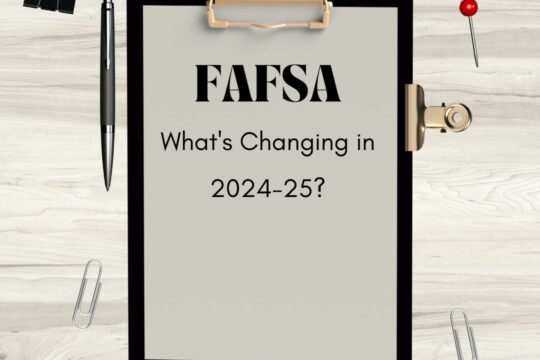
Navigating the FAFSA Maze: What’s Changing in 2024-25?
- November 13, 2023
Username or Email Address
Remember Me
Registration confirmation will be emailed to you.
- [email protected]
- (650) 338-8226
Cupertino, CA

- Our Philosophy
- Our Results
- News, Media, and Press
- Common Application
- College Application Essay Editing
- Extracurricular Planning
- Academic Guidance
- Summer Programs
- Interview Preparation
Middle School
- Pre-High School Consultation
- Boarding School Admissions
College Admissions
- Academic and Extracurricular Profile Evaluation
- Senior Editor College Application Program
- Summer Program Applications
- Private Consulting Program
- Transfer Admissions
- UC Transfer Admissions
- Ivy League Transfer Admissions
Graduate Admissions
- Graduate School Admissions
- MBA Admissions
Private Tutoring
- SAT/ACT Tutoring
- AP Exam Tutoring
- Olympiad Training
Research Programs
- Science Research Program
- Humanities Competitions
- Passion Project Program
- Ad Hoc Consulting
- Athletic Recruitment
- National Universities Rankings
- Liberal Arts Colleges Rankings
- Public Schools Rankings
Acceptance Rates
- University Acceptance Rates
- Transfer Acceptance Rates
- Supplemental Essays
- College Admissions Data
- Chances Calculator
- GPA Calculator
National Universities
- College Acceptance Rates
- College Overall Acceptance Rates
- College Regular Acceptance Rates
- College Early Acceptance Rates
- Ivy League Acceptance Rates
- Ivy League Overall Acceptance Rates
- Ivy League Regular Acceptance Rates
- Ivy League Early Acceptance Rates
Public Schools
- Public Schools Acceptance Rates
- Public Schools Overall Acceptance Rates
- Public Schools Regular Acceptance Rates
- Public Schools Early Acceptance Rates
Liberal Arts
- Liberal Arts Colleges Acceptance Rates
- Liberal Arts Colleges Overall Acceptance Rates
- Liberal Arts Colleges Regular Acceptance Rates
- Liberal Arts Colleges Early Acceptance Rates

10 College Essay Topics to Avoid

By Eric Eng

What makes a good college essay? This is a common question among high school seniors during the application process. A successful college essay captivates admissions officers and reveals the student’s identity and personality, creating a vivid picture that extends beyond grades and test scores, ultimately compelling the reader to advocate for the student’s admission. Thus, students must know which college essay topics to avoid.
Essays play a crucial role in the college admissions process. A well-crafted essay can significantly boost your chances of acceptance, while a poorly written one can jeopardize your prospects.
How can you ensure your college essays stand out? Sometimes, understanding the pitfalls to avoid is the best strategy. In this guide, we’ll explore the college essay topics to steer clear of and offer helpful tips to make your essays shine in the competitive admissions landscape.
Topics To Avoid In Your College Essays
Summary of Your Achievements and Transcripts
Why avoid it
- Redundant Information: Admissions officers already have access to your activities list and transcripts. Rehashing this information in your essay is redundant and doesn’t add any new insight into who you are as a person.
- Missed Opportunity: The essay is your chance to showcase your personality, values, and unique experiences. Repeating what’s already documented in your application wastes an opportunity to present a deeper, more personal narrative.
- Lack of Depth: This approach often results in a superficial essay that lacks depth and fails to provide a compelling story or insight.

Admissions officers may view this as a sign of laziness or a lack of creativity which is why this is one of the most common college essay topics to avoid. They might think you didn’t put in the effort to craft a meaningful essay. Is it so wrong to focus on what you have achieved during high school? It is not, but the main problem is that it misses the essay’s purpose—they won’t get a true sense of who you are.
With limited words, a long list of achievements will feel cramped and lack depth. In fact, it is considered one of the most overused college essay topics. There won’t be enough room to provide context or to showcase your personality. You already have the Activities List and Additional Info sections for these details. Ultimately, it’s far more effective to craft your essay around a single impactful experience rather than turning it into a resume.
Romantic Relationships and First Heartbreak
- Overly Personal: These topics can be very personal and may make the reader uncomfortable. They can also come off as immature if not handled with extreme care and maturity.
- Risk of TMI (Too Much Information): There is a fine line between sharing personal growth and oversharing. Admissions officers are looking for a professional, insightful narrative, not the details of your romantic life.
- Limited Universality: These experiences may not resonate with all readers, and they might be perceived as trivial compared to other potential topics.
Admissions officers might see essays on these topics as lacking maturity or relevance to your academic and personal development . Your love life isn’t relevant to the admissions committee. This makes it one of the Common App essay topics to avoid. Additionally, love is a vast and complex topic, making it unsuitable for a college application essay.
Another issue with this topic is that it shifts the focus away from you and onto someone else. Your essay should be centered on you, as you are the person the admissions committee wants to learn about. Make sure to put yourself first in your essay.
Your Life Hero
- Focus on Someone Else: This topic often results in an essay that focuses more on the hero than on you. Admissions officers want to learn about you, not someone you admire.
- Common Theme: Many students write about their heroes, making it a very common and less original topic.
- Lack of Personal Insight: These essays often fail to show how the hero’s influence has directly shaped your character, decisions, or future goals.

Admissions officers may see this as a missed opportunity to learn about you. They’re looking for essays that reflect your own experiences and perspectives. It’s a cliché college essay topic to avoid and not one of those good topics to write about. Much like writing about a romantic relationship, writing about your hero shifts the focus away from you and onto someone who isn’t applying to college.
That One Big Sports Challenge
- Overdone: Many students write about their sports experiences, making it one of the most common and clichéd topics.
- Predictable Plot: Sports stories often follow a predictable narrative arc (e.g., facing challenges, overcoming them, winning or losing a game), which doesn’t stand out.
- Focus on Events, Not Personal Growth: These essays can sometimes focus more on the events of the game rather than personal growth, lessons learned, or deeper reflections.
These essays may be viewed as generic unless the story offers a unique angle or deep personal insight that is rarely seen which is why this is one of the college essay topics to avoid.
Another major reason to avoid writing a college essay about a sports challenge is that it requires a lot of words to explain the context of the game, key plays, and the outcome. This leaves little room for personal reflection or stylistic writing, resulting in an essay that may label you as a “generic athlete” to the admissions committee.
Instead, think critically about your experiences to find a unique and compelling topic. For example, Laura Stratton, Director of Admission at Scripps College in California, recalls an exceptionally well-written sports essay about a student who was benched during a final game.
“The self-awareness the student showed by being a good team member, supporting her teammates, and staying positive despite not having the personal experience she wanted, spoke volumes about her character and the kind of roommate or classmate she would be.”
Private Confessions
- Inappropriate Content: Confessional essays can include sensitive or controversial topics that might not be appropriate for a college application.
- Risky Content: Sharing deeply personal issues or past mistakes might not portray you in the best light and can make readers uncomfortable.
- Lack of Positivity: These essays can sometimes come across as overly negative or self-pitying, which is not the tone you want to set.

Admissions officers might see these essays as risky and may question your judgment or maturity. If you feel guilty about something you’ve done that no one else knows about, it’s best not to share these confessions with the admissions committee. Such revelations likely won’t present you in the light you were hoping for.
Instead, focus on an experience that changed your perspective or how you navigated a challenging situation to the best of your ability. These anecdotes demonstrate growth, adaptability, and a willingness to change your viewpoint when presented with new information. These should be the topics to write about for college essay.
Unethical and Illegal Activities
- Negative Impression: Writing about illegal or unethical activities, even if you learned from them, can create a negative impression.
- Judgment Issues: Such topics can raise questions about your judgment and values.
- Inappropriate for Application: This content is generally considered inappropriate for a college application essay.
This topic will be viewed as a red flag, questioning your suitability for their institution making it one of the college essay topics to avoid. Even if it’s not an outright crime, you should avoid writing about unethical activities that reflect poorly on you. For instance, some students have written college essays about being caught cheating on a test and learning from the experience. While learning from mistakes is important, such an essay might lead the admissions committee to question your integrity and wonder if you’ll cheat on college tests and assignments.
The ideal essay topic should build trust with the committee and demonstrate that you’ll add value to the college. Writing about illegal or unethical activities makes this difficult to achieve.
Your Luck and Privilege
- Tone-Deafness: Essays that focus on how fortunate or blessed you are can come across as tone-deaf, especially if you do not acknowledge your privilege.
- Lack of Hardship or Growth: These essays often fail to show personal growth or resilience since they emphasize luck rather than effort or overcoming challenges.
- Perceived Superficiality: They can seem superficial and may not provide the depth of insight admissions officers are looking for.
Admissions officers might perceive you as lacking awareness or depth in your reflections which makes this one of the Common App essay topics to avoid. If you want to discuss your privilege or blessings, focus on the experience that made you aware of your life circumstances.

Describe how this realization changed you—not just in terms of perspective, but also in your actions. Explain what you did in response to this awakening, ensuring you convey it without coming across as a savior. Admissions committees appreciate vulnerability and honesty.
Your Experience in Volunteering and Educational Trips
- Overdone Topic: Many students write about volunteer experiences, making it one of the most cliche college essays.
- Savior Complex: These essays can sometimes come across as having a savior complex or as condescending towards the people you helped.
- Superficial Reflection: They often fail to move beyond the surface level of the experience to offer deeper personal insights or growth.
These essays are often viewed as unoriginal and lacking depth unless you can provide a unique perspective or profound personal growth making it one of the college essay topics to avoid.
If you’re determined to share an experience from a trip, choose one meaningful moment to focus on. Did you meet someone who significantly impacted your character or beliefs? Did you encounter an unexpected challenge that required you to rise to the occasion?
The Senior Vice President and Dean of Admissions and Student Aid at Bowdoin College , Whitney Soule, noted, “Overuse of a topic doesn’t make it a bad topic.” By honing in on one specific aspect of your trip, you can differentiate your essay and provide more depth than simply summarizing your entire excursion.
Destroying the ‘Box’
- Trying Too Hard to Be Different: Essays that try too hard to be unconventional can come across as forced or insincere. Good topics to write about always allow you to appear sincere and honest.
- Lack of Substance: Sometimes, these essays focus more on the format or the attempt to be different rather than the content and personal insight.
- Confusion: Unconventional essays can confuse or alienate the reader if not executed well.

These essays can be viewed as gimmicky and lacking in genuine reflection or substance. Being creative doesn’t require reinventing or destroying the wheel with your essay. Instead, focus on describing an anecdote or situation with detailed descriptions and vibrant imagery. Channel your creativity into your word choice and scene-setting. This approach will resonate more effectively with the admissions committee than a poem or song ever could (pun intended).
An Experience From Way Before High School
- Irrelevance: Admissions officers are more interested in your recent experiences and growth, particularly during high school.
- Lack of Current Reflection: Events from early childhood or before high school may not reflect your current maturity, skills, or perspectives.
- Missed Opportunity: Focusing on distant past events might cause you to miss the opportunity to showcase your more recent and relevant experiences and achievements.
Admissions officers may view these essays as irrelevant or uninformative about your current self, which is what they are most interested in.
What do admissions officers look for in college essays?
Overall, colleges aim to understand who you are through your essays, focusing on your perspective, values, and unique voice. However, there’s a paradox in the essay prompts: they are often quite broad. For instance, a prompt might ask you to describe a time you overcame a challenge.
Many students assume the admissions committee is primarily interested in the challenge itself. In reality, what the committee truly wants to learn is more about you, and these prompts were created to reveal your character in an insightful manner.
Admissions officers look for several key elements in college essays to understand applicants better and determine their fit for the institution. Here are some important aspects they consider:
1. Authenticity
- Genuine Voice: They want to hear your unique voice and see your true self. Authenticity stands out and makes your essay memorable. The best topics to write about for college essay should bring out your unique and honest voice.
- Personal Stories: Sharing personal anecdotes and reflections helps convey who you are beyond your grades and test scores.
2. Self-Reflection
- Insights: Demonstrating self-awareness and the ability to reflect on your experiences is crucial. Admissions officers are interested in how you interpret and learn from your experiences.
- Growth: They look for evidence of personal growth and development over time.
3. Clear and Engaging Writing
- Clarity: Your essay should be well-written and easy to follow. Clear, concise writing is important.
- Engagement: The essay should capture and hold the reader’s interest from start to finish.
4. Specificity
- Details: Use specific details and examples to illustrate your points. Vivid descriptions make your story more compelling.
- Focus: Rather than covering too many topics, focus on one or two key experiences that highlight your strengths and personality.
5. Originality
- Unique Perspective: Offering a unique perspective or angle can make your essay stand out. Avoid clichés and overused topics unless you can present them in an original way.
- Creative Expression: Creativity in how you express your ideas can make your essay more memorable.
6. Relevance to the College
- Fit: Show why you are a good fit for the college and how the college is a good fit for you. Mention specific programs, opportunities, or values that attract you to the school.
- Contribution: Highlight how you plan to contribute to the college community and what you bring to the table.
7. Values and Character
- Integrity and Ethics: Admissions officers look for students who demonstrate strong moral character and integrity.
- Passion and Commitment: Showing passion for your interests and commitment to your goals is important.
8. Resilience and Problem-Solving
- Overcoming Challenges: Discussing how you’ve faced and overcome challenges can demonstrate resilience and problem-solving skills. The best topics to write about for college essay should demonstrate how you have overcome challenges and what you learned from them.
- Adaptability: Showing how you adapt to new situations and learn from them is valuable.
- Community Involvement: Essays that highlight your involvement in and impact on your community can be very compelling.
- Making a Difference: Demonstrating how you have made a positive difference, whether large or small, can be impactful.
Frequently Asked Questions
What are personal experiences I should not talk about in my college essays?
Avoid discussing overused college essay topics and sensitive personal experiences such as illegal activities, romantic relationships, deeply personal confessions, traumatic events, or controversial topics in your college application. Instead, focus on experiences that showcase your growth, character, and suitability for the college. We also highlighted the college essay topics to avoid to help you write great college admissions essays.

What topics might come across as arrogant or boastful in my college essays?
Topics that might come across as arrogant or boastful in college essays include excessive bragging about achievements, highlighting privilege without self-awareness, and focusing too much on personal success without acknowledging others’ contributions or showing humility.
How do I know if an essay topic is overdone or unoriginal?
An essay topic is likely overdone or unoriginal if it frequently appears in common advice articles, feels generic, or lacks a unique personal angle. Researching overused college essay topics and common essay themes and seeking feedback can help determine their originality. To stand out, try to find a unique perspective or a more personal approach to these topics.
What are considered cliche college essays?
Cliché college essays typically include topics such as:
- Overcoming a sports injury
- The “big game” sports story
- Mission trips or volunteer experiences abroad
- Essays about a hero or influential person
- Generic reflections on personal growth
- Descriptions of a family member’s illness or death
- Essays centered around romantic relationships or breakups
- Stories of achieving academic success or winning awards without deeper personal insight
These topics are often overused and can lack the personal, unique touch that admissions officers seek.
Do I steer clear from writing about controversial and polarizing political or religious beliefs in my college essays?
Yes, it’s generally advisable to steer clear of writing about controversial and polarizing political or religious beliefs in your college essays. Such topics can be divisive and may detract from the primary goal of showcasing your personality, values, and potential fit with the college. Instead, focus on experiences and perspectives that highlight your growth, character, and individuality.
Want to assess your chances of admission? Take our FREE chances calculator today!

Why College Admissions Isn’t Perfect

US News Rankings

The Personal Statement: The Holy Grail of College Admissions

The Modern Day 4.0 and 1600 SAT Score Student Is No Longer Impressive

The Competitive Nature of College Admissions for Asian Americans

The College Application

Our Comprehensive Approach

Ivy League Schools

How Early Should You Prepare for College?

Featured in US News & World Report Best Colleges Publication

Congratulations to AdmissionSight Students and their Acceptances!

College Rejection

College Rankings

College Consultants Could Make A Difference

College Admissions Scandal and Higher Education

Top Advice for Students: Tips and Strategies for Success

A Comprehensive Guide to Nailing Your College Application Essay

College Application Tips: Best Hobbies to Put in Your Application

Can You Submit Different Common App Essays to Different Schools?

The Top 10 Most Difficult Engineering Majors in College

The Top 5 Most Prestigious Boarding Schools in the World

Fun High School Events Ideas for a Memorable School Year

250+ SAT Vocabulary Words Every High School Student Should Know

The Ultimate Guide to a Frat Pledge in College

Northwestern Legacy Acceptance Rate

University of Chicago Diversity Statistics: An Overview

Public Versus Private School Debate: The Real Deal in the US

UPenn Diversity Statistics: An Overview

The Top 10 Public Universities in the United States

Columbia Diversity Statistics: An Overview

Everything You Need to Know About National Merit Commended Scholar

Berkeley Diversity Statistics
Leave a comment cancel reply.
Your email address will not be published. Required fields are marked *
Save my name, email, and website in this browser for the next time I comment.
Recent Articles

Top Advice for Students: Tips...

A Comprehensive Guide to Nailing...

College Application Tips: Best Hobbies...
Can you submit different common....

The Top 10 Most Difficult...

The Top 5 Most Prestigious...

Fun High School Events Ideas...
250+ sat vocabulary words every....

The Ultimate Guide to a...

University of Chicago Diversity Statistics:...

Public Versus Private School Debate:...
Sign up now to receive insights on how to navigate the college admissions process..

Admissions Counseling
- Academic & Extracurricular Profile Evaluation
Copyright © AdmissionSight 2024
Privacy Policy - Terms and Conditions
15 College Essay Topics To Avoid and Why | Tips & Examples

Reviewed by:
Former Admissions Committee Member, Columbia University
Reviewed: 4/26/24
Entrance essays are an integral part of your college application. Beyond your test scores, GPA, and other achievements, your essays are essentially the heart of your application. Essays help admissions committees get to know the person behind the stats.
While your essays showcase your adept writing skills , they also uncover your personality, voice, background, experiences, and more.
You can choose your essay topics when you apply through the Common Application, Coalition Application, or any other online application portal. However, there are some topics you should avoid, or at the very least, slightly steer your narrative in another direction.
Below we’ll walk you through why it’s best to avoid some topics in your college entrance essays and a brief overview of some common topics to steer clear of or adjust the trajectory.
Why Should You Avoid Certain Topics for College Entrance Essays?
Your college entrance essay is your chance to make a lasting impression on admissions officers. It's a way to reveal who you are as a person, separate from your grades and test scores. But some topics can backfire, hindering your application instead of highlighting your strengths. Starting an essay topic right can be your ticket into your desired school.
Adam Sapp , Assistant Vice President and Director of Admissions at Pomona College, said, “The essays are important in part because this is a student's chance to really speak directly to the admissions office.”
What Do Colleges Look For in College Essays?
When it comes to college essays, colleges are on the hunt for a few key things. They want to get to know you beyond just your grades and test scores, so your essay is your chance to shine. Here's what they're generally looking for:
- Your Personality : Colleges want to see your personality come through in your essay. They want to know what makes you tick, what you're passionate about, and what kind of person you are. This is your chance to let your individuality shine.
- Writing Skills : Of course, colleges also want to see that you can write well. They'll be looking at your grammar, punctuation, and overall writing style. So, make sure your essay is well-structured and free of errors.
- Your Story : Everyone has a unique story to tell, and colleges are interested in yours. They want to know about your experiences, the challenges you've faced, and how you've grown as a result. Share something personal and meaningful.
- Why You're a Good Fit : Colleges also want to see that you've done your homework. They want to know why you're interested in their school specifically. What do you like about their programs, campus, or culture that makes you a good fit?
- Thoughtfulness : Your essay should show that you've put thought into your future and your academic goals. They want to see that you're serious about your education and have a clear sense of purpose.
- Creativity : While you want to be thoughtful and serious, don't be afraid to be creative and unique in your writing. A fresh perspective can make your essay stand out.
- Impact and Growth : Colleges love to see how you've made an impact in your community or how you've grown through your experiences. Share any leadership roles, volunteer work, or challenges you've overcome.
- Adherence to Guidelines : Finally, make sure your essay follows the specific guidelines provided by the college. Don't go over the word limit or ignore any prompts they've given.
Overall, colleges are looking for an authentic, well-written essay that gives them insight into who you are as a person, why you're interested in their school, and how you can contribute to their community. So, be yourself, put some thought into it, and don't forget to proofread!
15 Topics to Avoid in Your College Essays

The perfect college essay demonstrates your growth, character, and fit with the school. To drive the point home, choose an essay topic that has proven results . Before you start brainstorming, know there are many college essay topics to avoid altogether.
Some college essay topics are cliche, and some are risky, uncreative, or just downright inappropriate. We’ll talk you through all the topics to avoid in college essays.
1. Inappropriate Topics
Some people think rolling with an inappropriate topic and shocking the admissions committee is a great idea, but it’s not. Stay far, far away from anything to do with illegal activity, alcohol, substance use, and anything else following these themes.
You don’t set yourself up for success using topics like these. The admissions committee could cast judgment, and you’re certainly not putting your best foot forward.
The only time something like this may be appropriate is if you volunteered at a needle exchange or harm reduction facility. Even then, you’d want to delve into the topic with tact and grace or consider choosing another topic altogether.
Why Is This A Bad Topic For a College Essay?
Inappropriate topics like these are ill-advised because they can portray the applicant in an extremely negative light to admissions officers. Writing about illegal activities or substance abuse raises major red flags about the applicant's judgment and ability to make good choices. The admissions committee will likely view such topics as a lack of maturity and responsibility - qualities that are essential for college students.
2. A Rehash of Your Activities List and Transcripts
Essentially summarizing your achievements won’t make for a compelling narrative. The admissions committee already has access to your activities list and transcripts, so there’s no need to reiterate all of the items you wrote down.
Summarizing these documents is a mistake because it won’t add anything else to your application. Remember, you want to tell the admissions committee something they don’t already know.
If you want to write about a specific extracurricular, get close and personal with just one. Select the most meaningful activity or the one you were most passionate about and delve beyond the surface. Focusing on one activity can make for a successful essay if it shows your growth, positive character traits, or personality.
Rehashing information from other parts of the application is a wasted opportunity for the personal essay. The essay is meant to provide new insights into the applicant's personality, values, and experiences that transcripts and lists cannot convey. Simply recapping accomplishments fails to reveal anything meaningful about the applicant as an individual.
3. Relationships, Romance, and Breakups
As much as you may be head over heels for your partner, or scraping the bottom of ice cream tubs after a breakup, don’t turn these experiences into essay topics. It sounds a little harsh, but your love life doesn’t matter to the admissions committee. Besides that, love is a gigantic and complex topic not well-suited to a college application essay.
The other problem with this topic is it takes the focus off of yourself and onto another person. You want to ensure your essay is all about you . That's the person most important to the admissions committee, so put yourself first.
Romance and relationship drama makes for poor college essay topics because they are too personal and not relevant to the applicant's qualifications for admission. Admissions officers are focused on evaluating the applicant's academic potential, not their romantic endeavors. Essays on this topic come across as immature and could raise doubts about the applicant's ability to prioritize their studies over their love life.
4. Writing About Your Hero
Writing a story about your hero sounds nice in theory. However, it’s a cliche college essay topic to avoid. Like writing about your sweetheart (or ex-sweetheart), writing about your hero takes the spotlight away from you and directs it to someone who isn’t applying to college.
If you wanted to write about your hero in the first place, why? What did they inspire in you, or what experiences did you go through together? How did those experiences or “a-ha” moments make you a better person or a better candidate? Cut through the fluff and focus the lens back on yourself.
The problem with writing about a hero is that the essay becomes more about glorifying someone else rather than providing insights into the applicant's own life experiences, growth, and motivations. Admissions committees want to learn about the applicants themselves, not read an ode to someone else's accomplishments. The personal statement should maintain a strong focus on the applicant as an individual.
5. The Sports Story
Ah yes, the classic sports story. These essays typically follow different plots. Maybe you scored a point in the last moment, or your team won a championship game against all odds, or you wanted to showcase your training regimen.
Most people will tell you to stay away from sports topics altogether. If you are dead-set on writing about your sports experiences, don’t let your essay fall into cliche and predictable patterns.
Approach your sports story from a creative and new angle. Ask yourself the following questions:
- How did the skills you learned from sports impact another experience?
- Did being team captain give you the leadership skills you needed to succeed in leading an unrelated project?
Think critically about your experiences, and you could have a stellar essay topic on your hands to start writing .
Laura Stratton , Director of Admission at Scripps College in California, recounts an exceptionally well-written sports essay about a student benched in a final game.
“The self-awareness the student showed of being a good team member and showing up for her teammates, and continuing to be positive even though it wasn't the personal experience that she wanted to have, said a lot about her character and about the type of roommate she would be or classmate she would be.”
Always look for a fresh angle in your sports story if it’s the one you want to tell.
Sports stories are often cautioned against because they tend to be cliché and unoriginal. There are only so many ways to rehash the "big game" narrative before it becomes stale and uncompelling. Unless the applicant has a truly unique angle, a sports essay runs the risk of blending in with other applications and failing to make a memorable impression on admissions officers.
6. Tragedies
While tragedies you’ve faced can be formative experiences, this may be a college application essay topic to avoid. Some people aren’t comfortable sharing the intimate details of a tragedy they’ve faced, and that’s okay. Similarly, some people aren’t comfortable reading about the personal details of someone else’s tragedy.
However, if a tragic event such as the death of a loved one is imperative to your narrative, you can carefully craft a story including it. How was the tragedy an index event that impacted your thoughts or actions?
Tragic events require an extremely delicate approach in college essays. There is the risk of either oversharing disturbing details that make readers uncomfortable, or glossing over the tragedy too briefly to give it proper context.
Admissions officers may also worry that an applicant who has experienced major trauma is not in a good mindset for the rigors of college life. Overall, tragedies are very personal topics better avoided unless absolutely essential to the narrative.
7. Highly Personal Topics
Like tragic events, highly personal topics don’t always make the best essays . Examples of highly personal topics include past trauma, severe illnesses, and injuries. To fully explore the details of their stories, writers may get too graphic or go into way too much detail about these situations.
If a highly personal topic is central to the story you want to tell, ensure you handle your narrative delicately. It’s okay to briefly share these anecdotes as long as you don’t go into way too much personal detail.
Similar to tragic events, highly personal topics involving trauma, health issues, or other very private matters should be avoided unless directly relevant to the main narrative. Oversharing disturbing or graphic personal details can make readers uncomfortable and detract from the overall essay.
8. Controversial Topics: Politics, Religion, and More
Controversial topics are typically college essay topics to avoid. The problem with these is that not everyone will share the same views, and you may open yourself up to judgment from the admissions committee members who don’t.
Of course, admissions committees don’t make decisions based on criteria such as what political party you voted for or whether or not you attend a place of worship consistently. These topics work against you. Instead of showing why you’re the right candidate, writing about politics and religion can feel like you’re trying to convince the committee your views are correct.
The only time you may want to write about a polarizing topic like religion is if you plan to attend a school where religion is a part of its heritage, founding, and teaching, such as Notre Dame University.
Touching on controversial topics like politics or religion is inadvisable because it injects personal opinions and beliefs that may not align with the admissions officer reading the essay. This creates the potential for bias and judgment based on the applicant's stance on the issue.
The personal statement should aim to unite readers around the applicant's strengths, not divide them over polarizing debates.
9. The Confessional
If you want to craft a narrative about an obstacle you’ve faced or to share your growth throughout your high school years, avoid “the confessional.”
You may feel guilty about something you’ve done that no one else knows about: it’s probably best not to share these confessions with the admissions committee. Your confessional probably won’t paint you in the light you were hoping for.
Instead, focus on an experience where something or someone changed your perspective or how you navigated a challenging situation in the best way you could. These anecdotes show growth, adaptability, and the willingness to change your perspective when offered new information.
Confessional-style essays delving into past mistakes, guilt, or skeletons in the closet are cautioned against because they can very easily misfire. What the applicant intends as a narrative of growth may come across as a laundry list of poor choices and immaturity. Admissions officers want to see the present, best version of the applicant, not dwell on their past missteps.
10. Throwing the Box Away
It’s one thing to think outside the box, it’s another to throw the box out entirely and send it downriver. Sometimes students think an ultra-creative essay means going for an entirely new format, like writing a song or poem. While it might be more fun, it could put you at a disadvantage.
Being creative doesn't mean you have to reinvent the wheel with your essay. It means you can describe an anecdote or situation using detailed description and vibrant imagery. Pour your creativity into your word choice and how you set up a scene, and it’s sure to strike a much better chord with the admissions committee than a poem or song would (pun intended).
While creative writing is encouraged, completely disregarding traditional essay formatting and structure can be a gamble. Admissions officers have to read thousands of personal statements, so presenting the information in an unconventional way like a poem or song may just come across as gimmicky. It's better to channel creativity into excellent writing within the bounds of a standard essay format.
11. The Service/Mission/Class Trip
One of the problems with these essay topics is that everyone who has had the opportunity to participate in one of these trips wants to write about them. The second problem is that these narratives tend to follow similar themes and that students tend to write about the trip as a whole.
If your heart is set on sharing an experience from a trip, pick one meaningful moment to focus on. Did you meet someone on your trip that impacted your character or beliefs? Did you face an unexpected challenge that made you need to rise to the occasion?
Whitney Soule , Senior Vice President and Dean of Admissions and Student Aid at Bowdoin College, said, “Overuse of a topic doesn’t make it a bad topic.” Remember, honing in on one element of your trip can help differentiate your essay and show more depth than just glazing over your excursion.
Service trips, mission trips, or class trips are very common sources for college essays, which makes standing out difficult. Simply recounting the trip itself in a play-by-play fashion is unoriginal and doesn't reveal much about the applicant's unique perspective or growth. To make this topic work, the applicant needs to go beyond just describing the trip and pinpoint specific moments or interactions that were transformative.
12. Something That Happened Way Before High School
Many of our most formative experiences can happen long before reaching high school. While these moments are important to you, writing about something that happened to you way before high school may not make the best admissions essay. Your experiences before high school don’t show the admissions committee who you are right now; they show who you were before.
If you want to pick out a story about your childhood, ensure you relate it to high school or current events. This way, you get to tell that story, but you make it relevant to the person you are today.
For example, if both your parents are scientists and you used to put on their lab coats at five years old, relate it to how your love of science grew over time to lead you to your school choices now. Don’t just stick to the first part of the story.
While childhood experiences shape who we become, dwelling too much on events from the distant past can make the essay feel irrelevant to the present-day applicant. Admissions officers want to get a sense of the applicant's current identity, maturity, and mindset - not the person they were as a young child.
13. Your Privilege or Luck
If you’ve lived a privileged life or you’ve had stroke after stroke of good luck, focusing only on these elements isn’t in your best interest. It can come across like you haven't experienced any challenges or have a skewed vision of how the world works.
It’s fortunate if you’ve lived a reasonably trouble-free life thus far. However, dig deep and look for something beyond the surface of sunshine and rainbows—admissions committees like some vulnerability and honesty.
Essays that are overtly privileged or present a life of constant good fortune can come across as out-of-touch or lacking perspective. Admissions officers want to see that applicants have dealt with obstacles, learned from setbacks, and developed resilience.
An essay that reads as completely devoid of any challenges or hardships may raise questions about the applicant's ability to cope with future difficulties in college.
14. Anything That Involves Lying
You would think this one is obvious, but many people feel like their stories just aren’t good enough to tell, so they fabricate elements. The bottom line is you should never lie about anything in your college admissions essays . Admissions committees can smell insincerity. That’s not a personal quality you want to communicate to them.
Rest assured that you don’t need to have written a dramatic story filled with twists and turns. Excellent college essays can revolve around mundane topics. Write your truth, and don’t fudge any of the details.
Lying or embellishing details in a college essay is a surefire way to undermine the entire application. If caught, it demonstrates a serious lack of integrity that will disqualify the applicant.
Even if the lie slips through, the essay will likely come across as inauthentic. Admissions officers can usually spot when an applicant is exaggerating or fabricating stories. Honesty is always the best policy for personal statements.
15. Risky Topics Like Pointing Out a School’s Shortcomings
This type of writing is uncommon for a reason: it won’t work. Some students may think pointing out a school’s shortcomings and how their attendance may help bridge them will give their essay the shock factor they need to stand out.
Unfortunately, you’ll stand out in the wrong way. As a general rule, you probably shouldn’t rip apart the school you want to attend.
A better option is to describe how your acceptance will add to the school and campus culture. A response like this may be better suited to a “Why this school?” supplementary essay, but schools want to admit students who contribute to its culture and add a unique perspective to classrooms.
Criticizing or calling out perceived flaws in the school is an extremely risky move that is very unlikely to pay off. It comes across as arrogant and presumptuous for an applicant to claim they can single-handedly fix an institution's issues before even being admitted.
This tactic shows a lack of respect for the school and its existing community. Applicants are much better off highlighting their strengths as an additive force.
How To Write a Cliche College Essay That Works? (If You Really Want To)
While certain topics like inappropriate content, rehashing accomplishments, sports stories, and personal topics are generally cautioned against for college essays, there are ways to approach them thoughtfully if you insist on using them.
The key is to find a unique angle that shows personal growth, adaptability, vulnerability, or how the experience shaped you as an individual.
Rather than just recounting events, analyze how a relationship taught you empathy, how a tragedy changed your perspective, or how being a team captain demonstrated leadership.
Handle sensitive topics delicately without oversharing graphic details. Above all, ensure your narrative maintains an inward focus on your own insights, strengths, and fit for the university rather than distracting from your candidacy.
With creativity and self-awareness, even cliched topics can make compelling essays that showcase who you are.
Check out our College Essay Examples Database for a detailed look at successful essays.
Do you still have questions about college application essays? We've got answers! Check out this FAQ section to find the information you need to ace your application.

1. Are There Any Sensitive Personal Experiences I Should Avoid Discussing in My Essay?
Avoid overly sensitive topics that might be uncomfortable for admissions officers. Instead, choose experiences that demonstrate personal growth and resilience.
2. Are There Any Topics That Might Come Across as Boastful or Arrogant in a College Essay?
Avoid bragging about achievements or sounding self-important. Focus on how experiences shaped your character and values.
3. How Can I Identify Potentially Overdone or Unoriginal Essay Topics?
Think about common themes like sports victories or mission trips. To stand out, find a unique angle or a more personal way to approach these topics.
4. What Are Considered Cliché Topics in College Application Essays?
Cliché topics include sports victories ("the big game"), mission/volunteer trips, and overcoming a generic obstacle. Seek a fresh perspective to make these experiences more impactful.
5. Should I Avoid Discussing Controversial Political or Religious Beliefs in My College Essay?
Yes. It's generally best to avoid divisive topics. Focus on sharing experiences that highlight your values, problem-solving skills, and open-mindedness.
Final Thoughts
There are many cliche essay topics to avoid and some inappropriate to share with admissions committees. Your college admissions essays should always carry a professional yet conversational tone, and you shouldn’t write about anything that would be detrimental to your application.
Even though the above list is filled with topics to avoid in college essays, it doesn’t mean you can’t tweak them to make them more appropriate and a better story to tell. Your writing should authentically show your voice and character. Put your best foot (and best writing) forward, and you’re sure to produce stellar pieces of writing!
Get A Free Consultation
You may also like.

When Do Harvard Decisions Come Out?

18 Free SAT Practice Tests

Words and Phrases to Avoid in your College Essays
When it comes to college essays, sometimes the words you choose not to write make just as much of an impact as the words you do choose to write.
Readers get bored with seeing the same old clichés and run-on expressions over and over again. And adding in fluffy language or confusing idioms can leave them feeling lost in your words.

So how do you know exactly which words and phrases you should avoid in your writing assignments?
To start, you can seek inspiration from college essays that worked for other students. But ultimately it's nice to have a list of what not to do to help you avoid potential mistakes along the way.
What you Should Avoid
1. contractions.
Contractions may seem informal or lazy to the reader. Take the time to write the full phrase out.
NO: It's been a journey.
YES: It has been a journey.
Idioms can be confusing and are often overused. Clearly state what you mean in your own words.
NO: I thought the fancy-looking house was going to be awesome, but all that glitters is not gold .
YES: Even though I thought the new house was going to be incredible with its fancy appliances and enormous windows, I was proven wrong as the appliances all broke within the first week and the windows all leaked.
Also, phrases that introduce idioms are overused. Avoid using phrases like: You know what they say ... But we all know ... As we've heard over and over again ...
Clichés are so... cliché. Everyone is using them, and the words have lost their power. Choose specific and illustrative examples to use so your essay isn't lumped into a pile with all the essays that use worn-out clichés.
NO: I knew I had to give 110% if I was going to win the race.
YES: I knew I needed to train harder than I ever had before—before school, after school, every weekend—if I was going to win the race.
Phrases like “ Every cloud has a silver lining ” and “ Better late than never ” have no place in a creative and original college essay. This is your chance to paint a complete picture of yourself and your personality. Use descriptive language to let the reader hear your voice in your writing instead of an overused, out-of-date expression.
4. Slang and Abbreviations
I hope u r 2 smart to write something like this in a college essay. Abbreviations are not at all acceptable in formal writing such as a college essay.
Also, slang needs to be avoided. Use common language that people of all ages will understand. Remember your audience; you're writing for your professor, not your friends. And tone should reflect that.
NO: The party was lit , and everything was Gucci .
YES: The party was lively, the music was loud and fun, and everyone was having an amazing night.
5. Vague or Elementary Words
Use words that show you're capable of a deeper, more thorough understanding of topics. Avoid words that are vague or simple when there is a better way to demonstrate your meaning.
NO: The thing I read showed that the environment is bad .
YES: The article I studied concluded that the environment had been devastated by the recent occurrences of hurricanes and flooding.
If you find yourself using words like thing, stuff, bad, good, shows, and gives , challenge yourself to replace these words with stronger, more descriptive language.
6. Run-On Expressions
A run-on expression is a phrase, usually at the end of a list, that indicates you could add more examples ( and so on, and so forth, etc. ).

If something needs to be added to your list of examples, add specific examples. Don't add expressions such as etc. and and so on . These are vague and add nothing of substance to your essay.
NO: I love many sports: basketball, baseball, etc.
YES: I love many sports: basketball, baseball, soccer, tennis, and lacrosse.
7. Filler Words or Weak Modifiers
Increasing your word count by adding filler words will make your essay actually, very, very, very weak.
If you can get rid of a word and it makes no difference to your writing, get rid of it. Or better yet, rephrase it to demonstrate what you truly are trying to convey.
NO: I totally believe that we should actually make the laws much, much more strict very soon.
YES: I believe we should urgently make the laws more strict.
8. Exaggerated Words
Not everything you write about needs to be about the best or the worst . When you exaggerate in writing, it can come off as being insincere. Words like always and perfect also fall into this category.
NO: My team was the best team ever because we always played well and our shots were always perfect .
YES: My team was gifted at the game and played well. We could make some amazing shots.
9. Unnecessary Words
Sometimes writers don't even realize they are adding words that aren't needed. Compare these two examples:
NO: She has got four little puppies.
YES: She has four little puppies.
NO: This lotion helps to smooth the skin.
YES: This lotion helps smooth the skin.
Eliminating unnecessary words makes writing more clear and coherent. This is also an easy way to cut down when you're trying meet a word count requirement .
10. Grammatical Errors, Fragments, and Run-on Sentences
When your college essay draft is complete, make sure to proofread it thoroughly. And have a teacher or talented writer proof it again for you.
Avoid any spelling and grammatical errors, but also avoid fragments and run-on sentences. When it doubt, use an online sentence fragment checker or a grammar checker such as Grammarly to triple-check your work.

When writing, choose your words carefully. Pick the words that will make the greatest impact on your message and keep the reader's attention. Avoid the words and phrases that will make your essay weak and boring.
With careful consideration of your word choices, your essays will stand out for all of the right reasons. You'll be submitting advanced writing assignments that will help you ace your coursework!
How to Write Essay Titles and Headers
Don’t overlook the title and section headers when putting together your next writing assignment. Follow these pointers for keeping your writing organized and effective.
101 Standout Argumentative Essay Topic Ideas
Need a topic for your upcoming argumentative essay? We've got 100 helpful prompts to help you get kickstarted on your next writing assignment.
Writing a Standout College Admissions Essay
Your personal statement is arguably the most important part of your college application. Follow these guidelines for an exceptional admissions essay.
What are your chances of acceptance?
Calculate for all schools, your chance of acceptance.
Your chancing factors
Extracurriculars.
11 Cliché College Essay Topics + How to Fix Them
←11 Stellar Common App Essay Examples
5 Awesome College Essay Topics→

Does your Common App essay actually stand out?
Your essay can be the difference between an acceptance and rejection — it allows you to stand out from the rest of applicants with similar profiles. Get a free peer review or review other students’ essays right now to understand the strength of your essay.
Submit or Review an Essay — for free!
What makes a good college essay? It’s a question many high school seniors ask while going through the application process. A winning college essay engages admissions officers and shares with them the student’s identity and personality, painting a picture that goes beyond grades and test scores—compelling the reader to become an advocate for the student’s admission.
The Four Core Questions are at the heart of college essays and answering them is critical. Those questions are:
- Why am I here?
- What is unique about me?
- What matters to me?
By answering these questions, a student is able to share information that is otherwise hard to ascertain with admissions officials—things like personality traits, personal journey, interests, skills, and ambitions. A well-conceived and well-written essay is a way for students to separate themselves from other applicants; conversely, an ineffective essay does nothing to distinguish a student, which is why it’s so important to avoid writing a cliché college essay.
Cliché College Essay Topics to Avoid + How to Fix Them
1. résumé of your life and achievements.
Résumés are an effective method to demonstrate achievements, but they’re boring to read. This is why, in the professional world, résumés are often accompanied by a cover letter. A college application is essentially a student’s résumé—it contains their grades, test scores, and extracurricular activities—which makes an essay listing achievements redundant.
A better strategy is for students to pick one experience that stands above the rest and write about how it shaped the person they are today. This is especially effective for any experiences that would benefit from further explanation, or those that have an interesting backstory. For example, maybe you participate in a unique extracurricular that most people aren’t familiar with, such as being on a Chinese yoyo/diabolo team. You might choose to focus on that aspect of your identity and what it means to you. Or, maybe you love math, but never had the chance to explain on your application that you used to hate math, until a tutor showed you a different way to appreciate it (and that’s one of the reasons you want to become a math teacher). This would be another strong topic.
You don’t necessarily have to focus on one specific event, but your essay should be cohesive. Another traditional essay structure is telling a narrative over an extended period of time. This structure incorporates a handful of different experiences that are joined by a common thread. If you have a story of growth, change, or development, this is the classic essay structure for you. An example of this might be a football player who was embarrassed to admit he liked writing and poetry, but how he eventually became a published author, and came to accept and own his identity as a poet.
2. Sports injury, challenge, or success
Coaches on every level are known for telling their athletes about how the lessons learned on the field/court/ice translate to life. Unfortunately, these lessons and stories have been told in numerous movies and books, along with countless college essays
To successfully write a college essay about sports, it’s important to steer clear of the common themes.
- Overcoming adversity
- Trusting teammates
- Refusing to quit
- The thrill of victory
- The agony of defeat
For example, instead of an applicant talking about how their team trained and improved to beat their rivals or win a championship, they should write about a unique way that sports shaped who they are. For example, here’s an unexpected way to write about a sports injury: maybe tearing your ACL in a soccer game actually led you to start a podcast while you were recovering, which became one of your biggest passions.
Along a similar line, a student could write about discovering their motivation for playing sports. Maybe they always played basketball because they were good, or their parents expected them to play, but they realized they didn’t enjoy the competitive nature of the sport and wanted to gravitate toward less competitive activities like hiking or surfing.
3. Immigrant story
The U.S. is a nation of immigrants and while not every student has an immigrant story, a lot of them do. Consequently, these immigrant themes are ones that every admissions officer has read before:
- Learning a new language
- Adapting to new customs
- Adjusting to a new lifestyle
- Struggling to fit in
Asian students, in particular, should avoid immigrant-themed essays, as they have a harder time getting into college due to demographics, and this topic only calls attention to their background.
To make an immigration essay work (and avoid being another cliché college essay), a student needs to make it extremely unique or incredibly personal. One tactic is to write about a singular experience—moments of conflict are always an interesting topic. For example, a student might write about a time they were made to feel unwelcome in the U.S. and how they responded to that moment, such as volunteering at the community cultural center or creating a welcoming committee for new immigrants.
Another essay opportunity is to write about an experience that is truly unique. Perhaps, when a student first came to the U.S., they didn’t have access to a vehicle or public transportation and needed to walk to school or their job. That student could use their college essay to focus on what they learned on their walks and the ambitions it sparked—such as tenacity to succeed against all odds, or a desire to found a program for immigrants in a similar position.
4. Tragedy – death, divorce, abuse
Tragedies are formative experiences, which in theory make them a natural theme for a college essay; however, tragedies are often a universal experience. Furthermore, essays on this topic are too often centered on the tragedy itself, rather than the applicant.
It is possible to write a college essay about a tragedy that isn’t cliche, however. The key is to keep it focused on the applicant and highly personal. To start, avoid overused themes like “life is short” and “make every day count.” Instead, highlight how the tragedy affected the writer. For example, if you had a friend who passed away from substance abuse, an essay centered around your subsequent commitment to drug prevention programs and advocacy is an interesting angle.
In the case of an applicant who had a parent pass away, writing about shifting family dynamics, new responsibilities, and increased challenges are all great themes. For example, a student went from worrying just about academics to becoming the other adult in the house—preparing meals for their siblings, sending them off to school, and helping them with their homework.
5. Working hard in a challenging class
Working hard in a challenging class doesn’t work as an essay topic for a handful of reasons. If you’re applying to a highly ranked institution, it’s likely that most of their applicants took tough classes and worked hard. They also likely faced challenging classes, struggled, and ultimately succeeded. Another reason to avoid this topic? The traits conveyed are likely covered by recommendation letters:
- Perseverance
- Work ethic
- Intellectual ability
Instead of writing your essay about overcoming a tough class, think about the personality traits you want to highlight. If you feel that your determination is already covered in other aspects of your application, pick another trait to feature in your essay. Or maybe, you feel like your determination isn’t emphasized enough. Which other experiences highlight this trait?
Another idea is to make the essay less about the class and more about the writer. Instead of sharing how you struggled to understand Crime and Punishment in your advanced lit class, you might detail how the class inspired a desire to write, or how the works covered made you reflect on your own life.
You could also pick a problem or research question you want to solve, as per the fourth Common App essay prompt. Just remember that while the topic is an intellectual problem, your essay should still highlight your personality, identity, and way you think about the world. Pick something that is deeply personal to you and your background. For instance, maybe you want to create a proposal to solve food deserts in your county. This would allow you to share your personal experiences growing up in a food desert, your passion for increasing access to healthy food, and your analytical abilities.
6. Someone you admire (a person you know or historical figure)
The primary pitfall of writing about an admired person is that the essay is often focused more on the other person than the applicant. Even if students steer the essay toward themselves, they usually find themselves covering familiar themes:
- Learning something about themselves
- Learning something about life
- Learning something about the world
The key to keeping writing about another person from becoming another cliché college essay is to keep the focus on the applicant. A great way to do this is to highlight a specific moment where they exemplified an attribute or action that they commend in a person that they admire. For example, if an essay writer admires their father’s ethos of standing up for what is right, an excellent essay theme is the time they stood up for another student who was being bullied, even though they knew they risked losing popularity, or finding themselves in the crosshairs of the bully as the result.
If the person they admire is historical, they can talk about how they are trying to live their life according to those ideals. For example, the aspiring writer can focus their essay on how they adopted Hemingway’s ritual of writing every morning as soon after first light as possible, and what they’ve learned from that process.
7. Volunteer trip
Building a winning essay about a volunteer trip is tricky—at best, these essays come off as cliché; at their worst, they can make an applicant seem pretentious, condescending, and privileged. Like other topics, the key is for the writer to focus on themself, not the group they volunteered for or the place they went.
One way to avoid the cliché volunteer essay is to write about a specific moment on your trip, rather than giving a chronological account of your time. Get really specific and bring the reader into the moment and share with them how it affected you. An attention-grabbing essay will show the reader how you changed, instead of telling them.
Another trick for turning volunteer essays from cliché to eye-catching is focusing on an unusual experience that happened during the volunteer trip. For example, a delayed flight while travelling home that left you stranded in a foreign city all alone and how it’s a parable for stepping on campus for the first time.
8. Moving to a different part of the country
Similar to the immigrant story, writing about moving to a new place is also an overly-done topic. Countless students move or switch schools each year. Many have trouble fitting in or adjusting to a new place, but eventually make new friends.
If moving was really integral to your high school experience and identity, think about why that is. Did it push you to try new interests or become more outgoing? Focus your essay less on the move itself and your adjustment, and more on how exactly it changed your life.
For instance, some more original ways of spinning this topic would be:
- How moving led you to start an organization that picks up unwanted furniture for free, and resells or donates items in good condition. For items in bad condition, you find ways to repair and upcycle them. This was motivated by all the trash you saw your family produce during the move.
- At your new school, you joined the gymnastics team because you were known as the uncoordinated, awkward girl at your old school, and you wanted to shed that image.
- After moving, you decided to go by the proper pronunciation of your Spanish name, rather than the anglicized version. You could write your essay on why you made this decision, and how it impacted your experience in your new community.
9. Your religious institution or faith
Religion is generally a very tricky topic, and it’s difficult to cover it in an original way in your essay. Writing about your faith and reflecting on it critically can work, but basic religious essays about why your faith is important to you are a little more clich é .
It’s important to also remember your audience. If you’re applying to a religious school, essays about your faith will likely be expected. If you’re applying to a super liberal school, you might want to avoid writing your essay about your conservative religious views.
Regardless of your situation, if you decide to write an essay on religion, share your personal relationship with your faith. Anyone can write broadly about how much their faith means to them or how their life changed when they found religion, but only you can share your personal experiences, thoughts, and perspectives.
10. Romantic relationships and breakups
Your college essays should be personal, but romantic relationships and breakups are a little too personal. Remember that applying to college is kind of like applying to a job, and you want to present yourself in a professional light. This means that writing about your romantic life is a bad idea in general.
Unlike the other clich é topics, there are not really any directly-relevant alternatives. If you wanted to write your essay on your relationship, think about what traits that story would’ve brought out. For a breakup, was it your ability to overcome a setback? For a happy relationship, is it being emotionally intelligent or finding a compromise during conflict? Think about how you could still write an essay that conveys the same aspect of your identity, without mentioning this cliché topic.
11. Family pressure to pursue a particular major or field
Many students unfortunately experience family pressure to do certain activities or choose specific career paths. If this is the case for you, you shouldn’t focus your essay on this topic—it will only make it look like you lack independence from your parents. This is not a good sign to admissions committees, as they want a campus full of students who have the autonomy to make their own decisions.
That’s not to say that parental input isn’t valid—you may have very legitimate reasons to follow your parents’ advice to pursue a particular career, especially if your family is low-income and you need to provide for them. But there are absolutely better topics to share your identity and background, beyond parental pressure.
Some ways to make this topic more original are:
- If you have strict parents, discussing how you became more independent from them, and an example of when you did something for your personal development that they might not have agreed with at the time.
- For those whose background influenced their decision to choose a “practical” field, you might talk about your situation growing up and how that influences your perspective and choices. Of course, you should still try to show genuine interest in your plans, as you don’t want to make it seem like you’re being “forced” to do something.
Wondering if your personal essay topic is cliché? You can ask for the advice of peers and experts in our free Q&A forum . If you’re looking for feedback on your essay, you can also get your essay peer-reviewed for free . Just sign up for your free CollegeVine account to get started!
Related CollegeVine Blog Posts

Calculate for all schools
Your chance of acceptance, your chancing factors, extracurriculars, what topics should i avoid in my college essays.
I'm feeling a bit stressed because I want to make sure my essays stand out, but I've heard that certain topics aren't great choices. Can anyone share some examples of subjects I should avoid in my college essays?
It's understandable that you want to write an outstanding college essay that stands out among the rest! Here are some common topics that you should avoid or approach cautiously when putting together your essay:
1. Cliché topics: This includes stories about sports injuries or victories, adjusting to a new school, first-generation immigration experiences, or overcoming challenging academic coursework. These topics tend to be overused and may not help you stand out among other applicants.
2. Tragedy or death: Writing about suffering a significant loss or enduring an adverse event is a tricky subject. The main issue is that focusing on grief may overshadow the essay's true purpose—showcasing your personality, strengths, and growth.
3. Controversial issues: Avoid writing extensively about political, religious, or polarizing topics. Your views might not align with the beliefs of the person reading your essay, which could lead to an unfavorable impression.
4. Frequently bragging or self-aggrandizing: While it's essential to highlight your achievements, focusing solely on your accomplishments can come across as self-absorbed and might not show a genuine understanding of personal growth or introspection.
5. Illegal or unethical activities: Writing about engaging in illegal activities, even if they are in your past, may negatively impact your application's overall impression.
6. Excessive humor: Using humor in your essay can be risky. If the joke doesn't land or is inappropriate, it could leave a negative impression.
Remember that an excellent college essay offers insight into your personality, interests, and growth. The key is to find a unique angle on your chosen topic that reflects your genuine experiences and perspectives.
For example, if you're set on writing about a sports injury, you could focus on how the downtime during recovery led to discovering a new hobby or skill. For immigration experiences, you could emphasize a specific moment that shaped your identity or outlook on life.
When developing your essay, think about what makes your experience distinctive and how it has influenced your development as a person. This approach will help you craft a compelling essay that leaves a lasting impression on the admissions officers.
About CollegeVine’s Expert FAQ
CollegeVine’s Q&A seeks to offer informed perspectives on commonly asked admissions questions. Every answer is refined and validated by our team of admissions experts to ensure it resonates with trusted knowledge in the field.

Choose Your Test
- Search Blogs By Category
- College Admissions
- AP and IB Exams
- GPA and Coursework
Bad College Essays: 10 Mistakes You Must Avoid
College Essays

Just as there are noteworthy examples of excellent college essays that admissions offices like to publish, so are there cringe-worthy examples of terrible college essays that end up being described by anonymous admissions officers on Reddit discussion boards.
While I won't guarantee that your essay will end up in the first category, I will say that you follow my advice in this article, your essay most assuredly won't end up in the second. How do you avoid writing a bad admissions essay? Read on to find out what makes an essay bad and to learn which college essay topics to avoid. I'll also explain how to recognize bad college essays—and what to do to if you end up creating one by accident.
What Makes Bad College Essays Bad
What exactly happens to turn a college essay terrible? Just as great personal statements combine an unexpected topic with superb execution, flawed personal statements compound problematic subject matter with poor execution.
Problems With the Topic
The primary way to screw up a college essay is to flub what the essay is about or how you've decided to discuss a particular experience. Badly chosen essay content can easily create an essay that is off-putting in one of a number of ways I'll discuss in the next section.
The essay is the place to let the admissions office of your target college get to know your personality, character, and the talents and skills that aren't on your transcript. So if you start with a terrible topic, not only will you end up with a bad essay, but you risk ruining the good impression that the rest of your application makes.
Some bad topics show admissions officers that you don't have a good sense of judgment or maturity , which is a problem since they are building a class of college students who have to be able to handle independent life on campus.
Other bad topics suggest that you are a boring person , or someone who doesn't process your experience in a colorful or lively way, which is a problem since colleges want to create a dynamic and engaged cohort of students.
Still other bad topics indicate that you're unaware of or disconnected from the outside world and focused only on yourself , which is a problem since part of the point of college is to engage with new people and new ideas, and admissions officers are looking for people who can do that.
Problems With the Execution
Sometimes, even if the experiences you discuss could be the foundation of a great personal statement, the way you've structured and put together your essay sends up warning flags. This is because the admissions essay is also a place to show the admissions team the maturity and clarity of your writing style.
One way to get this part wrong is to exhibit very faulty writing mechanics , like unclear syntax or incorrectly used punctuation. This is a problem since college-ready writing is one of the things that's expected from a high school graduate.
Another way to mess this up is to ignore prompt instructions either for creative or careless reasons. This can show admissions officers that you're either someone who simply blows off directions and instructions or someone who can't understand how to follow them . Neither is a good thing, since they are looking for people who are open to receiving new information from professors and not just deciding they know everything already.

College Essay Topics To Avoid
Want to know why you're often advised to write about something mundane and everyday for your college essay? That's because the more out-there your topic, the more likely it is to stumble into one of these trouble categories.
Too Personal
The problem with the overly personal essay topic is that revealing something very private can show that you don't really understand boundaries . And knowing where appropriate boundaries are will be key for living on your own with a bunch of people not related to you.
Unfortunately, stumbling into the TMI zone of essay topics is more common than you think. One quick test for checking your privacy-breaking level: if it's not something you'd tell a friendly stranger sitting next to you on the plane, maybe don't tell it to the admissions office.
- Describing losing your virginity, or anything about your sex life really. This doesn't mean you can't write about your sexual orientation—just leave out the actual physical act.
- Writing in too much detail about your illness, disability, any other bodily functions. Detailed meaningful discussion of what this physical condition has meant to you and your life is a great thing to write about. But stay away from body horror and graphic descriptions that are simply there for gratuitous shock value.
- Waxing poetic about your love for your significant other. Your relationship is adorable to the people currently involved in it, but those who don't know you aren't invested in this aspect of your life.
- Confessing to odd and unusual desires of the sexual or illegal variety. Your obsession with cultivating cacti is wonderful topic, while your obsession with researching explosives is a terrible one.

Too Revealing of Bad Judgment
Generally speaking, leave past illegal or immoral actions out of your essay . It's simply a bad idea to give admissions officers ammunition to dislike you.
Some exceptions might be if you did something in a very, very different mindset from the one you're in now (in the midst of escaping from danger, under severe coercion, or when you were very young, for example). Or if your essay is about explaining how you've turned over a new leaf and you have the transcript to back you up.
- Writing about committing crime as something fun or exciting. Unless it's on your permanent record, and you'd like a chance to explain how you've learned your lesson and changed, don't put this in your essay.
- Describing drug use or the experience of being drunk or high. Even if you're in a state where some recreational drugs are legal, you're a high school student. Your only exposure to mind-altering substances should be caffeine.
- Making up fictional stories about yourself as though they are true. You're unlikely to be a good enough fantasist to pull this off, and there's no reason to roll the dice on being discovered to be a liar.
- Detailing your personality flaws. Unless you have a great story of coping with one of these, leave deal-breakers like pathological narcissism out of your personal statement.

Too Overconfident
While it's great to have faith in your abilities, no one likes a relentless show-off. No matter how magnificent your accomplishments, if you decide to focus your essay on them, it's better to describe a setback or a moment of doubt rather that simply praising yourself to the skies.
- Bragging and making yourself the flawless hero of your essay. This goes double if you're writing about not particularly exciting achievements like scoring the winning goal or getting the lead in the play.
- Having no awareness of the actual scope of your accomplishments. It's lovely that you take time to help others, but volunteer-tutoring a couple of hours a week doesn't make you a saintly figure.

Too Clichéd or Boring
Remember your reader. In this case, you're trying to make yourself memorable to an admissions officer who has been reading thousands of other essays . If your essay makes the mistake of being boring or trite, it just won't register in that person's mind as anything worth paying attention to.
- Transcribing your resume into sentence form or writing about the main activity on your transcript. The application already includes your resume, or a detailed list of your various activities. Unless the prompt specifically asks you to write about your main activity, the essay needs to be about a facet of your interests and personality that doesn't come through the other parts of the application.
- Writing about sports. Every athlete tries to write this essay. Unless you have a completely off-the-wall story or unusual achievement, leave this overdone topic be.
- Being moved by your community service trip to a third-world country. Were you were impressed at how happy the people seemed despite being poor? Did you learn a valuable lesson about how privileged you are? Unfortunately, so has every other teenager who traveled on one of these trips. Writing about this tends to simultaneously make you sound unempathetic, clueless about the world, way over-privileged, and condescending. Unless you have a highly specific, totally unusual story to tell, don't do it.
- Reacting with sadness to a sad, but very common experience. Unfortunately, many of the hard, formative events in your life are fairly universal. So, if you're going to write about death or divorce, make sure to focus on how you dealt with this event, so the essay is something only you could possibly have written. Only detailed, idiosyncratic description can save this topic.
- Going meta. Don't write about the fact that you're writing the essay as we speak, and now the reader is reading it, and look, the essay is right here in the reader's hand. It's a technique that seems clever, but has already been done many times in many different ways.
- Offering your ideas on how to fix the world. This is especially true if your solution is an easy fix, if only everyone would just listen to you. Trust me, there's just no way you are being realistically appreciative of the level of complexity inherent in the problem you're describing.
- Starting with a famous quotation. There usually is no need to shore up your own words by bringing in someone else's. Of course, if you are writing about a particular phrase that you've adopted as a life motto, feel free to include it. But even then, having it be the first line in your essay feels like you're handing the keys over to that author and asking them to drive.
- Using an everyday object as a metaphor for your life/personality. "Shoes. They are like this, and like that, and people love them for all of these reasons. And guess what? They are just like me."

Too Off-Topic
Unlike the essays you've been writing in school where the idea is to analyze something outside of yourself, the main subject of your college essay should be you, your background, your makeup, and your future . Writing about someone or something else might well make a great essay, but not for this context.
- Paying tribute to someone very important to you. Everyone would love to meet your grandma, but this isn't the time to focus on her amazing coming of age story. If you do want to talk about a person who is important to your life, dwell on the ways you've been impacted by them, and how you will incorporate this impact into your future.
- Documenting how well other people do things, say things, are active, while you remain passive and inactive in the essay. Being in the orbit of someone else's important lab work, or complex stage production, or meaningful political activism is a fantastic learning moment. But if you decide to write about, your essay should be about your learning and how you've been influenced, not about the other person's achievements.
- Concentrating on a work of art that deeply moved you. Watch out for the pitfall of writing an analytical essay about that work, and not at all about your reaction to it or how you've been affected since. Check out our explanation of how to answer Topic D of the ApplyTexas application to get some advice on writing about someone else's work while making sure your essay still points back at you.

(Image: Pieter Christoffel Wonder [Public domain] , via Wikimedia Commons)

Too Offensive
With this potential mistake, you run the risk of showing a lack of self-awareness or the ability to be open to new ideas . Remember, no reader wants to be lectured at. If that's what your essay does, you are demonstrating an inability to communicate successfully with others.
Also, remember that no college is eager to admit someone who is too close-minded to benefit from being taught by others. A long, one-sided essay about a hot-button issue will suggest that you are exactly that.
- Ranting at length about political, religious, or other contentious topics. You simply don't know where the admissions officer who reads your essay stands on any of these issues. It's better to avoid upsetting or angering that person.
- Writing a one-sided diatribe about guns, abortion, the death penalty, immigration, or anything else in the news. Even if you can marshal facts in your argument, this essay is simply the wrong place to take a narrow, unempathetic side in an ongoing debate.
- Mentioning anything negative about the school you're applying to. Again, your reader is someone who works there and presumably is proud of the place. This is not the time to question the admissions officer's opinions or life choices.

College Essay Execution Problems To Avoid
Bad college essays aren't only caused by bad topics. Sometimes, even if you're writing about an interesting, relevant topic, you can still seem immature or unready for college life because of the way you present that topic—the way you actually write your personal statement. Check to make sure you haven't made any of the common mistakes on this list.
Tone-Deafness
Admissions officers are looking for resourcefulness, the ability to be resilient, and an active and optimistic approach to life —these are all qualities that create a thriving college student. Essays that don't show these qualities are usually suffering from tone-deafness.
- Being whiny or complaining about problems in your life. Is the essay about everyone doing things to/against you? About things happening to you, rather than you doing anything about them? That perspective is a definite turn-off.
- Trying and failing to use humor. You may be very funny in real life, but it's hard to be successfully funny in this context, especially when writing for a reader who doesn't know you. If you do want to use humor, I'd recommend the simplest and most straightforward version: being self-deprecating and low-key.
- Talking down to the reader, or alternately being self-aggrandizing. No one enjoys being condescended to. In this case, much of the function of your essay is to charm and make yourself likable, which is unlikely to happen if you adopt this tone.
- Being pessimistic, cynical, and generally depressive. You are applying to college because you are looking forward to a future of learning, achievement, and self-actualization. This is not the time to bust out your existential ennui and your jaded, been-there-done-that attitude toward life.

(Image: Eduard Munch [Public Domain] , via Wikimedia Commons)
Lack of Personality
One good question to ask yourself is: could anyone else have written this essay ? If the answer is yes, then you aren't doing a good job of representing your unique perspective on the world. It's very important to demonstrate your ability to be a detailed observer of the world, since that will be one of your main jobs as a college student.
- Avoiding any emotions, and appearing robot-like and cold in the essay. Unlike essays that you've been writing for class, this essay is meant to be a showcase of your authorial voice and personality. It may seem strange to shift gears after learning how to take yourself out of your writing, but this is the place where you have to put as much as yourself in as possible.
- Skipping over description and specific details in favor of writing only in vague generalities. Does your narrative feel like a newspaper horoscope, which could apply to every other person who was there that day? Then you're doing it wrong and need to refocus on your reaction, feelings, understanding, and transformation.

Off-Kilter Style
There's some room for creativity here, yes, but a college essay isn't a free-for-all postmodern art class . True, there are prompts that specifically call for your most out-of-left-field submission, or allow you to submit a portfolio or some other work sample instead of a traditional essay. But on a standard application, it's better to stick to traditional prose, split into paragraphs, further split into sentences.
- Submitting anything other than just the materials asked for on your application. Don't send food to the admissions office, don't write your essay on clothing or shoes, don't create a YouTube channel about your undying commitment to the school. I know there are a lot of urban legends about "that one time this crazy thing worked," but they are either not true or about something that will not work a second time.
- Writing your essay in verse, in the form of a play, in bullet points, as an acrostic, or any other non-prose form. Unless you really have a way with poetry or playwriting, and you are very confident that you can meet the demands of the prompt and explain yourself well in this form, don't discard prose simply for the sake of being different.
- Using as many "fancy" words as possible and getting very far away from sounding like yourself. Admissions officers are unanimous in wanting to hear your not fully formed teenage voice in your essay. This means that you should write at the top of your vocabulary range and syntax complexity, but don't trade every word up for a thesaurus synonym. Your essay will suffer for it.

Failure to Proofread
Most people have a hard time checking over their own work. This is why you have to make sure that someone else proofreads your writing . This is the one place where you can, should—and really must—get someone who knows all about grammar, punctuation and has a good eye for detail to take a red pencil to your final draft.
Otherwise, you look like you either don't know the basic rules or writing (in which case, are you really ready for college work?) or don't care enough to present yourself well (in which case, why would the admissions people care about admitting you?).
- Typos, grammatical mistakes, punctuation flubs, weird font/paragraph spacing issues. It's true that these are often unintentional mistakes. But caring about getting it right is a way to demonstrate your work ethic and dedication to the task at hand.
- Going over the word limit. Part of showing your brilliance is being able to work within arbitrary rules and limitations. Going over the word count points to a lack of self-control, which is not a very attractive feature in a college applicant.
- Repeating the same word(s) or sentence structure over and over again. This makes your prose monotonous and hard to read.

Bad College Essay Examples—And How to Fix Them
The beauty of writing is that you get to rewrite. So if you think of your essay as a draft waiting to be revised into a better version rather than as a precious jewel that can't bear being touched, you'll be in far better shape to correct the issues that always crop up!
Now let's take a look at some actual college essay drafts to see where the writer is going wrong and how the issue could be fixed.
Essay #1: The "I Am Writing This Essay as We Speak" Meta-Narrative
Was your childhood home destroyed by a landspout tornado? Yeah, neither was mine. I know that intro might have given the impression that this college essay will be about withstanding disasters, but the truth is that it isn't about that at all.
In my junior year, I always had in mind an image of myself finishing the college essay months before the deadline. But as the weeks dragged on and the deadline drew near, it soon became clear that at the rate things are going I would probably have to make new plans for my October, November and December.
Falling into my personal wormhole, I sat down with my mom to talk about colleges. "Maybe you should write about Star Trek ," she suggested, "you know how you've always been obsessed with Captain Picard, calling him your dream mentor. Unique hobbies make good topics, right? You'll sound creative!" I played with the thought in my mind, tapping my imaginary communicator pin and whispering "Computer. Tea. Earl Grey. Hot. And then an Essay." Nothing happened. Instead, I sat quietly in my room wrote the old-fashioned way. Days later I emerged from my room disheveled, but to my dismay, this college essay made me sound like just a guy who can't get over the fact that he'll never take the Starfleet Academy entrance exam. So, I tossed my essay away without even getting to disintegrate it with a phaser set on stun.
I fell into a state of panic. My college essay. My image of myself in senior year. Almost out of nowhere, Robert Jameson Smith offered his words of advice. Perfect! He suggested students begin their college essay by listing their achievements and letting their essay materialize from there. My heart lifted, I took his advice and listed three of my greatest achievements - mastering my backgammon strategy, being a part of TREE in my sophomore year, and performing "I Am the Very Model of a Modern Major-General" from The Pirates of Penzance in public. And sure enough, I felt inspiration hit me and began to type away furiously into the keyboard about my experience in TREE, or Trees Require Engaged Environmentalists. I reflected on the current state of deforestation, and described the dichotomy of it being both understandable why farmers cut down forests for farmland, and how dangerous this is to our planet. Finally, I added my personal epiphany to the end of my college essay as the cherry on the vanilla sundae, as the overused saying goes.
After 3 weeks of figuring myself out, I have converted myself into a piece of writing. As far as achievements go, this was definitely an amazing one. The ability to transform a human being into 603 words surely deserves a gold medal. Yet in this essay, I was still being nagged by a voice that couldn't be ignored. Eventually, I submitted to that yelling inner voice and decided that this was not the right essay either.
In the middle of a hike through Philadelphia's Fairmount Park, I realized that the college essay was nothing more than an embodiment of my character. The two essays I have written were not right because they have failed to become more than just words on recycled paper. The subject failed to come alive. Certainly my keen interest in Star Trek and my enthusiasm for TREE are a great part of who I am, but there were other qualities essential in my character that did not come across in the essays.
With this realization, I turned around as quickly as I could without crashing into a tree.
What Essay #1 Does Well
Here are all things that are working on all cylinders for this personal statement as is.
Killer First Sentence
Was your childhood home destroyed by a landspout tornado? Yeah, neither was mine.
- A strange fact. There are different kinds of tornadoes? What is a "landspout tornado" anyway?
- A late-night-deep-thoughts hypothetical. What would it be like to be a kid whose house was destroyed in this unusual way?
- Direct engagement with the reader. Instead of asking "what would it be like to have a tornado destroy a house" it asks "was your house ever destroyed."
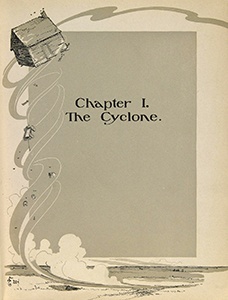
Gentle, Self-Deprecating Humor That Lands Well
I played with the thought in my mind, tapping my imaginary communicator pin and whispering "Computer. Tea. Earl Grey. Hot. And then an Essay." Nothing happened. Instead, I sat quietly in my room wrote the old-fashioned way. Days later I emerged from my room disheveled, but to my dismay, this college essay made me sound like just a guy who can't get over the fact that he'll never take the Starfleet Academy entrance exam. So, I tossed my essay away without even getting to disintegrate it with a phaser set on stun.
The author has his cake and eats it too here: both making fun of himself for being super into the Star Trek mythos, but also showing himself being committed enough to try whispering a command to the Enterprise computer alone in his room. You know, just in case.
A Solid Point That Is Made Paragraph by Paragraph
The meat of the essay is that the two versions of himself that the author thought about portraying each fails in some way to describe the real him. Neither an essay focusing on his off-beat interests, nor an essay devoted to his serious activism could capture everything about a well-rounded person in 600 words.

(Image: fir0002 via Wikimedia Commons .)
Where Essay #1 Needs Revision
Rewriting these flawed parts will make the essay shine.
Spending Way Too Long on the Metanarrative
I know that intro might have given the impression that this college essay will be about withstanding disasters, but the truth is that it isn't about that at all.
After 3 weeks of figuring myself out, I have converted myself into a piece of writing. As far as achievements go, this was definitely an amazing one. The ability to transform a human being into 603 words surely deserves a gold medal.
Look at how long and draggy these paragraphs are, especially after that zippy opening. Is it at all interesting to read about how someone else found the process of writing hard? Not really, because this is a very common experience.
In the rewrite, I'd advise condensing all of this to maybe a sentence to get to the meat of the actual essay .
Letting Other People Do All the Doing
I sat down with my mom to talk about colleges. "Maybe you should write about Star Trek ," she suggested, "you know how you've always been obsessed with Captain Picard, calling him your dream mentor. Unique hobbies make good topics, right? You'll sound creative!"
Almost out of nowhere, Robert Jameson Smith offered his words of advice. Perfect! He suggested students begin their college essay by listing their achievements and letting their essay materialize from there.
Twice in the essay, the author lets someone else tell him what to do. Not only that, but it sounds like both of the "incomplete" essays were dictated by the thoughts of other people and had little to do with his own ideas, experiences, or initiative.
In the rewrite, it would be better to recast both the Star Trek and the TREE versions of the essay as the author's own thoughts rather than someone else's suggestions . This way, the point of the essay—taking apart the idea that a college essay could summarize life experience—is earned by the author's two failed attempts to write that other kind of essay.

Leaving the Insight and Meaning Out of His Experiences
Both the Star Trek fandom and the TREE activism were obviously important life experiences for this author—important enough to be potential college essay topic candidates. But there is no description of what the author did with either one, nor any explanation of why these were so meaningful to his life.
It's fine to say that none of your achievements individually define you, but in order for that to work, you have to really sell the achievements themselves.
In the rewrite, it would be good to explore what he learned about himself and the world by pursuing these interests . How did they change him or seen him into the person he is today?
Not Adding New Shades and Facets of Himself Into the Mix
So, I tossed my essay away without even getting to disintegrate it with a phaser set on stun.
Yet in this essay, I was still being nagged by a voice that couldn't be ignored. Eventually, I submitted to that yelling inner voice and decided that this was not the right essay either.
In both of these passages, there is the perfect opportunity to point out what exactly these failed versions of the essay didn't capture about the author . In the next essay draft, I would suggest subtly making a point about his other qualities.
For example, after the Star Trek paragraph, he could talk about other culture he likes to consume, especially if he can discuss art forms he is interested in that would not be expected from someone who loves Star Trek .
Or, after the TREE paragraph, the author could explain why this second essay was no better at capturing him than the first. What was missing? Why is the self in the essay shouting—is it because this version paints him as an overly aggressive activist?

Essay #2: The "I Once Saw Poor People" Service Trip Essay
Unlike other teenagers, I'm not concerned about money, or partying, or what others think of me. Unlike other eighteen year-olds, I think about my future, and haven't become totally materialistic and acquisitive. My whole outlook on life changed after I realized that my life was just being handed to me on a silver spoon, and yet there were those in the world who didn't have enough food to eat or place to live. I realized that the one thing that this world needed more than anything was compassion; compassion for those less fortunate than us.
During the summer of 2006, I went on a community service trip to rural Peru to help build an elementary school for kids there. I expected harsh conditions, but what I encountered was far worse. It was one thing to watch commercials asking for donations to help the unfortunate people in less developed countries, yet it was a whole different story to actually live it. Even after all this time, I can still hear babies crying from hunger; I can still see the filthy rags that they wore; I can still smell the stench of misery and hopelessness. But my most vivid memory was the moment I first got to the farming town. The conditions of it hit me by surprise; it looked much worse in real life than compared to the what our group leader had told us. Poverty to me and everyone else I knew was a foreign concept that people hear about on the news or see in documentaries. But this abject poverty was their life, their reality. And for the brief ten days I was there, it would be mine too. As all of this realization came at once, I felt overwhelmed by the weight of what was to come. Would I be able to live in the same conditions as these people? Would I catch a disease that no longer existed in the first world, or maybe die from drinking contaminated water? As these questions rolled around my already dazed mind, I heard a soft voice asking me in Spanish, "Are you okay? Is there anything I can do to make you feel better?" I looked down to see a small boy, around nine years of age, who looked starved, and cold, wearing tattered clothing, comforting me. These people who have so little were able to forget their own needs, and put those much more fortunate ahead of themselves. It was at that moment that I saw how selfish I had been. How many people suffered like this in the world, while I went about life concerned about nothing at all?
Thinking back on the trip, maybe I made a difference, maybe not. But I gained something much more important. I gained the desire to make the world a better place for others. It was in a small, poverty-stricken village in Peru that I finally realized that there was more to life than just being alive.
What Essay #2 Does Well
Let's first point out what this draft has going for it.
Clear Chronology
This is an essay that tries to explain a shift in perspective. There are different ways to structure this overarching idea, but a chronological approach that starts with an earlier opinion, describes a mind changing event, and ends with the transformed point of view is an easy and clear way to lay this potentially complex subject out.
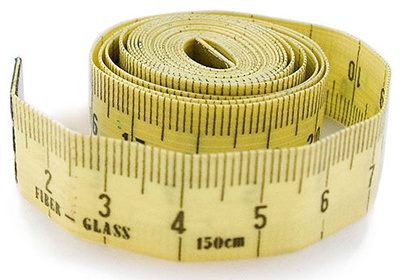
(Image: User:Lite via Wikimedia Commons)
Where Essay #2 Needs Revision
Now let's see what needs to be changed in order for this essay to pass muster.
Condescending, Obnoxious Tone
Unlike other teenagers, I'm not concerned about money, or partying, or what others think of me. Unlike other eighteen year-olds, I think about my future, and haven't become totally materialistic and acquisitive.
This is a very broad generalization, which doesn't tend to be the best way to formulate an argument—or to start an essay. It just makes this author sound dismissive of a huge swath of the population.
In the rewrite, this author would be way better off just concentrate on what she want to say about herself, not pass judgment on "other teenagers," most of whom she doesn't know and will never meet.
I realized that the one thing that this world needed more than anything was compassion; compassion for those less fortunate than us.
Coming from someone who hasn't earned her place in the world through anything but the luck of being born, the word "compassion" sounds really condescending. Calling others "less fortunate" when you're a senior in high school has a dehumanizing quality to it.
These people who have so little were able to forget their own needs, and put those much more fortunate in front of themselves.
Again, this comes across as very patronizing. Not only that, but to this little boy the author was clearly not looking all that "fortunate"—instead, she looked pathetic enough to need comforting.
In the next draft, a better hook could be making the essay about the many different kinds of shifting perspectives the author encountered on that trip . A more meaningful essay would compare and contrast the points of view of the TV commercials, to what the group leader said, to the author's own expectations, and finally to this child's point of view.

Vague, Unobservant Description
During the summer of 2006, I went on a community service trip to rural Peru to help build an elementary school for kids there. I expected harsh conditions, but what I encountered was far worse. It was one thing to watch commercials asking for donations to help the unfortunate people in less developed countries, yet it was a whole different story to actually live it. Even after all this time, I can still hear babies crying from hunger; I can still see the filthy rags that they wore; I can still smell the stench of misery and hopelessness.
Phrases like "cries of the small children from not having enough to eat" and "dirt stained rags" seem like descriptions, but they're really closer to incurious and completely hackneyed generalizations. Why were the kids were crying? How many kids? All the kids? One specific really loud kid?
The same goes for "filthy rags," which is both an incredibly insensitive way to talk about the clothing of these villagers, and again shows a total lack of interest in their life. Why were their clothes dirty? Were they workers or farmers so their clothes showing marks of labor? Did they have Sunday clothes? Traditional clothes they would put on for special occasions? Did they make their own clothes? That would be a good reason to keep wearing clothing even if it had "stains" on it.
The rewrite should either make this section more specific and less reliant on cliches, or should discard it altogether .
The conditions of it hit me by surprise; it looked much worse in real life than compared to the what our group leader had told us. Poverty to me and everyone else I knew was a foreign concept that people hear about on the news or see in documentaries. But this abject poverty was their life, their reality.
If this is the "most vivid memory," then I would expect to read all the details that have been seared into the author's brain. What did their leader tell them? What was different in real life? What was the light like? What did the houses/roads/grass/fields/trees/animals/cars look like? What time of day was it? Did they get there by bus, train, or plane? Was there an airport/train station/bus terminal? A city center? Shops? A marketplace?
There are any number of details to include here when doing another drafting pass.

Lack of Insight or Maturity
But this abject poverty was their life, their reality. And for the brief ten days I was there, it would be mine too. As all of this realization came at once, I felt overwhelmed by the weight of what was to come. Would I be able to live in the same conditions as these people? Would I catch a disease that no longer existed in the first world, or maybe die from drinking contaminated water?
Without a framing device explaining that this initial panic was an overreaction, this section just makes the author sound whiny, entitled, melodramatic, and immature . After all, this isn't a a solo wilderness trek—the author is there with a paid guided program. Just how much mortality is typically associated with these very standard college-application-boosting service trips?
In a rewrite, I would suggest including more perspective on the author's outsized and overprivileged response here. This would fit well with a new focus on the different points of view on this village the author encountered.
Unearned, Clichéd "Deep Thoughts"
But I gained something much more important. I gained the desire to make the world a better place for others. It was in a small, poverty-stricken village in Peru that I finally realized that there was more to life than just being alive.
Is it really believable that this is what the author learned? There is maybe some evidence to suggest that the author was shaken somewhat out of a comfortable, materialistic existence. But what does "there is more to life than just being alive" even really mean? This conclusion is rather vague, and seems mostly a non sequitur.
In a rewrite, the essay should be completely reoriented to discuss how differently others see us than we see ourselves, pivoting on the experience of being pitied by someone who you thought was pitiable. Then, the new version can end by on a note of being better able to understand different points of view and other people's perspectives .

The Bottom Line
- Bad college essays have problems either with their topics or their execution.
- The essay is how admissions officers learn about your personality, point of view, and maturity level, so getting the topic right is a key factor in letting them see you as an aware, self-directed, open-minded applicant who is going to thrive in an environment of independence.
- The essay is also how admissions officers learn that you are writing at a ready-for-college level, so screwing up the execution shows that you either don't know how to write, or don't care enough to do it well.
- The main ways college essay topics go wrong is bad taste, bad judgment, and lack of self-awareness.
- The main ways college essays fail in their execution have to do with ignoring format, syntax, and genre expectations.
What's Next?
Want to read some excellent college essays now that you've seen some examples of flawed one? Take a look through our roundup of college essay examples published by colleges and then get help with brainstorming your perfect college essay topic .
Need some guidance on other parts of the application process? Check out our detailed, step-by-step guide to college applications for advice.
Are you considering taking the SAT or ACT again before you submit your application? Read about our famous test prep guides for hints and strategies for a better score.

Trending Now
How to Get Into Harvard and the Ivy League
How to Get a Perfect 4.0 GPA
How to Write an Amazing College Essay
What Exactly Are Colleges Looking For?
ACT vs. SAT: Which Test Should You Take?
When should you take the SAT or ACT?
Get Your Free

Find Your Target SAT Score
Free Complete Official SAT Practice Tests
How to Get a Perfect SAT Score, by an Expert Full Scorer
Score 800 on SAT Math
Score 800 on SAT Reading and Writing
How to Improve Your Low SAT Score
Score 600 on SAT Math
Score 600 on SAT Reading and Writing
Find Your Target ACT Score
Complete Official Free ACT Practice Tests
How to Get a Perfect ACT Score, by a 36 Full Scorer
Get a 36 on ACT English
Get a 36 on ACT Math
Get a 36 on ACT Reading
Get a 36 on ACT Science
How to Improve Your Low ACT Score
Get a 24 on ACT English
Get a 24 on ACT Math
Get a 24 on ACT Reading
Get a 24 on ACT Science
Stay Informed
Get the latest articles and test prep tips!

Anna scored in the 99th percentile on her SATs in high school, and went on to major in English at Princeton and to get her doctorate in English Literature at Columbia. She is passionate about improving student access to higher education.
Ask a Question Below
Have any questions about this article or other topics? Ask below and we'll reply!
Login or sign up to be automatically entered into our next $10,000 scholarship giveaway
Get Started
- College Search
- College Search Map
- Graduate Programs
- Featured Colleges
- Scholarship Search
- Lists & Rankings
- User Resources
Articles & Advice
- All Categories
- Ask the Experts
- Campus Visits
- Catholic Colleges and Universities
- Christian Colleges and Universities
- College Admission
- College Athletics
- College Diversity
- Counselors and Consultants
- Education and Teaching
- Financial Aid
- Graduate School
- Health and Medicine
- International Students
- Internships and Careers
- Majors and Academics
- Performing and Visual Arts
- Public Colleges and Universities
- Science and Engineering
- Student Life
- Transfer Students
- Why CollegeXpress
- $10,000 Scholarship
- CollegeXpress Store
- Corporate Website
- Terms of Use
- Privacy Policy
- CA and EU Privacy Policy
Articles & Advice > College Admission > Articles

College Admission Essay Topics: Best and Worst
What should you write your college admission essay about? Which topics should you avoid? Check out some of the best (and the worst) college essay topic ideas!
by Phoebe Bain Freelance Writer
Last Updated: Apr 6, 2023
Originally Posted: Aug 16, 2017
The essay is easily one of the most difficult parts of the college application process. How can someone describe themselves in such a short amount of space, especially when all their accomplishments are listed on the page before and they don’t want to sound repetitive? There are a few clichés to avoid in the college essay world. Keep reading to find out what to avoid and what to approach in your college essay writing journey.
Worst of the worst
The sports game.
A great college admission essay makes the reader say something along the lines of, “Wow, I’ve never heard of someone who did/experienced that before.” Know what nearly everyone has experienced before? Winning or losing. More specifically, almost everyone has either won or lost a sports game. Talking about your experience coping with your win or loss will pile you in with every other applicant that the admission officer reads about that day, aka the exact opposite of what you want to happen to you and your beloved essay.
The breakup
A lot like dating a bad boy, this essay tempts you. Think about it: talking about your love life seems deep . Maybe a breakup feels like the biggest hardship you have faced thus far, or perhaps you think the way you supported your 10th grade girlfriend during her science competition seems like a great metaphor for how you plan to support your university community. However, just like with any good piece of writing, you need to know your audience. And in this case, your audience does not think anything about your high school relationship sounds impressive. College admission officers have not been in high school for a very long time. They might have been through a divorce or had to support their spouse through the death of one of their parents or children. But they have a bit more perspective on relationships than the average high school senior, so they will probably not find the demise of your junior year relationship as poignant as you do.
The mission trip
Everyone who has been to Togo/Haiti/Guatemala wants to write about the time they saw real Third World poverty for the first time and extrapolate on how their lives were never the same after said experience. And while that experience may have really affected your life, it affects the lives of thousands of upper–middle class students around America in the exact same way, and they are all writing the same essay about it as we speak. If your time in Sierra Leone really feels like what you need to tell your dream school about, talk about a specific experience, like a conversation you had with someone who lived there. The cliché service trip essay often sounds incredibly vague, so if you must write about your experience, make sure you tell a very specific story that brings the reader into a certain moment with you (more on that later).
The “different” essay
I once had a friend show me an essay he wrote in which he had to describe the best day of his life. Naturally, he wrote about the time he slept until five in the evening, ate some ice cream, then went back to sleep. However, he was not a lazy kid at all. He was really into piano and lacrosse, but he wanted his essay to sound off the beaten path and unique. So rather than talking about one of his passions, he decided to write about something he knew no one else would try…the time he slept all day. Unfortunately, there is a really good reason no one else wrote that essay. The same goes for trying to be creative and responding with one word, one sentence, or a poem. Although those are very different responses from what admission officers reads, this does not mean they are good responses. There are other ways to stand out without compromising your intelligence.
Related: Admission Essay Ideas That Just Don't Work
Better essay ideas
The ridiculous way you grew up (and how it affects you now).
The first time I went to Harvard to hang out with friends, I met a student who was raised by wolves. Yes, you read that right; she actually grew up in a wolf rehabilitation community. Sure, she was also a model and an Economics major, but the whole raised by wolves thing was definitely more memorable than anything else about her. If you grew up in a unique way that affects who you are now, it might be worth writing about in a college essay to make your application more memorable.
Focusing on a moment
If you decide you have to talk about one of the cliché essay topics mentioned above, a good way to tell a more common story is to focus on one specific moment and build from there. For instance, if I were only interested in field hockey and felt I absolutely had to write about the sport in my essay, I would not write about some vague game and how good it felt when my team won. I would write about the sound the ball makes hitting the back of the goal, how my adrenaline changes in that moment, how all the sounds around me slowly rush into my ears afterwards. Then, most importantly, after describing the moment, I would write about its significance by connecting it to some larger idea or meaning or characteristic about myself. Focusing on a moment that changed your life—such as the time you broke your back as a kid in a car crash, or the time your dad told you the family was moving to a different country—can also function well in your college essay.
Personality pic
A good friend of mine in high school had to answer an interesting question for the school where he ended up enrolling. The university’s supplemental application asked him to describe one of his quirks. I distinctly recall reading my friend’s essay about him being a storyteller above all else and visibly grinning as my eyes passed over each line, because the essay was just so genuine and true. He was a storyteller; he told all of us tales of his fly-fishing summer job in the Adirondacks, spun yarns about wolves that spoke to him while he was camping, and talked about his skydiving uncle like he was a superhero in a comic book. The storyteller anecdote never would have come through in the rest of his Common Application, but it was truly one of his most significant personality traits. So, lesson learned, read over your Common Application, and at the end, ask yourself, “What’s missing?” Who knows—the answer to that question might be the basis for your admission essay.
Lust for literature
If you have a friend or family member who reads a lot of books in their free time, I bet you think they’re pretty intelligent. Fortunately, colleges will think the same thing about you if you decide to incorporate your love of literature into your essay. Maybe you have a book in which you strongly relate to one of the characters. Perhaps a philosophical text really elucidates your current paradigm. Or maybe you strive to write like a certain author one day. Whatever the case, you really cannot go wrong writing about the literature you love, as your passion for it will shine through the pages.
Related: Top College Admission Essay Myths Debunked
We hope these tips help guide your topic selection when it comes time to write your college application essay! Find even more college essay advice in our Application Essay Clinic .
Like what you’re reading?
Join the CollegeXpress community! Create a free account and we’ll notify you about new articles, scholarship deadlines, and more.
Tags: admission essay topics admission essays application essays college admission college applications college essays
Join our community of over 5 million students!
CollegeXpress has everything you need to simplify your college search, get connected to schools, and find your perfect fit.
College Quick Connect
Swipe right to request information. Swipe left if you're not interested.
Appalachian State University
Moody Bible Institute
Chicago, IL
Waynesburg University
Waynesburg, PA
Cleveland State University
Cleveland, OH
The University of Tampa
Gonzaga University
Spokane, WA
SUNY Polytechnic Institute
Utica and Albany, NY
Malone University
Rutgers, The State University of New Jersey—New Brunswick
New Brunswick, NJ
Goldey-Beacom College
Wilmington, DE
University of Missouri
Columbia, MO
Hillsdale College
Hillsdale, MI
Manhattanville University
Purchase, NY
St. John's University
Jamaica, NY
Wheaton College
Purdue University Northwest
Hammond, IN
Vermont State University
Randolph Center, VT
University of Massachusetts Dartmouth
North Dartmouth, MA
Western Michigan University
Kalamazoo, MI
University at Albany
Gardner-Webb University
Boiling Springs, NC
Alfred University
Iona University
New Rochelle, NY
That's it for now!

Mataya Mann
High School Class of 2022
To say that CollegeXpress is a helpful tool would be an understatement as it is much more than that. Before finding CollegeXpress, all I knew was that I wanted to go to college, it was going to be insanely expensive, and I felt lost. CollegeXpress has given me access to resources such as helpful tips for applications and scholarship [opportunities], and helped guide me in a direction where I feel confident moving forward and pursuing a career. CollegeXpress has helped instill a spark in me that makes me want to continue and supports me in doing so.

Josiah Kegg
High School Class of 2021
I want to sincerely thank you all for this amazing website that's legitimately helped me find so many different scholarship opportunities. I've been stressing out for the longest time about paying for college since I would rather stay out of debt and have been working days trying to find any scholarship opportunity. When I found CollegeXpress, I discovered many easy scholarships that have given me hope for the future. Thank you and God bless!
High School Class of 2023
I’m currently a college freshman attending Towson University. My major is Information Technology, and I plan to minor in Electronic Media & Film to achieve my goal of becoming a production engineer. Upon graduating high school earlier this year, I was awarded a $5,000 scholarship from CollegeXpress, which greatly assisted in paying my tuition. Truthfully, this financial reward was the difference in affording my room and board and tuition, along with other expenses for school. My family and I haven’t stopped celebrating my award since it was bestowed on me. I will never forget this opportunity for allowing me to get my foot into my university financially.
Yuhlani Patterson
High School Student
CollegeXpress has helped me find so many scholarships that fit me. They match me to colleges I have specific interest in to make searching for colleges way easier and more efficient. CollegeXpress refers me to schools that have my major of interest and backup schools if I want to change my mind. CollegeXpress also gives out their own scholarships, so you have even more of a chance at gaining multiple scholarships. This website has helped me de-stress from the pressure of not being able to afford college, [of finding] what schools are right for me, and how to find easy access to scholarships that most people never knew existed.

CollegeXpress has provided me with tips that were for college students, but as a high school junior, they were still very useful. Not only that, it also gave me an idea of what to expect when it comes to going to college or already being in college. I want to say thank you to CollegeXpress, and I hope you continue the wonderful tips until I hopefully get into college and throughout my college journey.
- Best Ways to Prepare for 5 Different Supplemental Essays
- How to Write an Effective, Powerful Personal Statement
- Don't Use Your English Paper as a College Essay
- 6 of the Worst College Admission Essay Myths You Shouldn't Listen To
- Top College Essay Tips From Admission Insiders
Personalize your experience on CollegeXpress.
With this information, we'll display content relevant to your interests. By subscribing, you agree to receive CollegeXpress emails and to make your information available to colleges, scholarship programs, and other companies that have relevant/related offers.
Already have an account?
Log in to be directly connected to
Not a CollegeXpress user?
Don't want to register.
Provide your information below to connect with
Watch CBS News
10 topics to avoid in a college admission essay
By Lynn O'Shaughnessy
June 21, 2013 / 8:12 AM EDT / MoneyWatch
(MoneyWatch) For students who are applying for college, one of the scariest parts of the admission process is writing the dreaded essay.
A common mistake that students make when tackling their college essays is to pick the wrong topics. It's a huge turn off, for instance, when applicants write about their sports exploits or their pets. I asked Janine Robinson, who is the creator of a wonderful website called Essay Hell and the author of an excellent ebook entitled " Escape Essay Hell ," to identify those essay topics that teenagers should absolutely avoid.
- 5 tips for writing a winning college essay
- 5 myths about getting in and paying for college
- 10 great opening lines from Stanford admission essays
Here are Robinson's college essay no-no's:
1. Listing accomplishments. You might be the most amazing person on the planet, but nobody wants a recitation of the wonderful things you've done, the people you've encountered and the places you've visited.
2. Sports. Do you know how many millions of teens have written about scoring the winning goal, basket or run? You definitely don't want to write about your winning team. And nobody wants to read about your losing team, either.
3. Sharing how lucky you are. If you are one of the lucky teenagers who has grown up in an affluent household, with all the perks that goes with it, no need to share that with college admission officials. "The last thing anyone wants to read about is your ski trip to Aspen or your hot oil massage at a fancy resort," Robinson observed.
4. Writing an "un-essay." Many students, particularly some of the brightest ones, have a negative reaction to the strictures of the admission essay. In response, Robinson says, "They want to write in stream-of-consciousness or be sarcastic, and I totally understand this reaction. However, you must remember your goal with these essays -- to get accepted! Save the radical expression for after you get into college."
5. Inflammatory topics. It's unwise to write about politics or religion, two of the most polarizing topics. Avoid any topics that make people angry.
6. Illegal activity. Do not write about drug use, drinking and driving, arrests or jail time. Also leave your sexual activities out of the frame. Even if you have abandoned your reckless ways, don't bring it up.
7. Do-good experiences. Schools do not want to hear about your church or school trip to another country or region to help the disadvantaged. You may be able to write about a trip like this only if you focus on a specific experience within the broader trip.
8. The most important thing or person in my life. This topic is too broad and too loaded, whether you want to write about God, your mom or best friend. These essays are usually painfully boring.
9. Death, divorce, tragedies. The problem with these topics is not that they are depressing, but that such powerful topics can be challenging to write about. Absolutely no pet stories -- admission officers hate them.
10. Humor. A story within a college essay can be amusing, but don't try to make the entire essay funny.

View all articles by Lynn O'Shaughnessy on CBS MoneyWatch» Lynn O'Shaughnessy is a best-selling author, consultant and speaker on issues that parents with college-bound teenagers face. She explains how families can make college more affordable through her website TheCollegeSolution.com ; her financial workbook, Shrinking the Cost of College ; and the new second edition of her Amazon best-selling book, The College Solution: A Guide for Everyone Looking for the Right School at the Right Price .
More from CBS News
Have a language expert improve your writing
Check your paper for plagiarism in 10 minutes, generate your apa citations for free.
- Knowledge Base
- College essay
How to End a College Admissions Essay | 4 Winning Strategies
Published on October 16, 2021 by Meredith Testa . Revised on May 31, 2023.
The ending of your college essay should leave your reader with a sense of closure and a strong final impression.
Table of contents
Endings to avoid, option 1: return to the beginning, option 2: look forward, option 3: reveal your main point, option 4: end on an action, other interesting articles, frequently asked questions about college application essays.
A bad conclusion can bring your whole essay down, so make sure to avoid these common mistakes.
Summarizing
Unlike an academic essay, an admissions essay shouldn’t restate your points. Avoid ending with a summary; there’s no need to repeat what you’ve already written.
Phrases like “in conclusion,” “overall,” or “to sum it up” signal that you have nothing to add to what you’ve already written, so an admissions officer may stop reading.
Stating the obvious
Instead of stating the obvious, let your work speak for itself and allow readers to draw their own conclusions. If your essay details various times that you worked tirelessly to go above and beyond, don’t finish it by stating “I’m hardworking.” Admissions officers are smart enough to figure that out on their own.
You should also avoid talking about how you hope to be accepted. Admissions officers know you want to be accepted—that’s why you applied! It’s okay to connect what you discuss in the essay to your potential future career or college experience, but don’t beg for admission. Stay focused on your essay’s core topic.
Prevent plagiarism. Run a free check.
Many successful essays follow a “sandwich,” or full-circle, structure , meaning that they start with some image or idea, veer away from it in the middle, and then return to it at the end.
This structure is clean, self-contained, and satisfying for readers, so it’s a great choice if it works with the topic you’ve chosen.
In the “sandwich” essay outlined below, a student discusses his passion for musical theater. Instead of simply stating that interest, his essay starts with a funny anecdote about a minor fire that erupted on set. At the end, it returns to this anecdote, creating a sense of closure.
- Intro: I may be the world’s worst firefighter.
- Flashback to working on the school musical
- Demonstrate my passion for theatre
- Detail the story of the theater set catching fire
- Show how I made the most of the situation
- Conclusion: I proved my value as a director, an actor, and a writer that week一even if I was a terrible firefighter.
Many successful essays end by looking forward to the future. These endings are generally hopeful and positive—always great qualities in an admissions essay—and often connect the student to the college or their academic goals.
Although these endings can be highly effective, it can be challenging to keep them from sounding cliché. Keep your ending specific to you, and don’t default to generalities, which can make your essay seem bland and unoriginal.
Below are a good and a bad example of how you could write a “looking forward” ending for the musical theater “firefighter” essay.
| I have found my calling on the stage of the theater and the stage of life. | Musical theater will always be part of my life一even if firefighting won’t. |
Sometimes, holding back your main point can be a good strategy. If your essay recounts several experiences, you could save your main message for the conclusion, only explaining what ties all the stories together at the very end.
When done well, this ending leaves the reader thinking about the main point you want them to take from your essay. It’s also a memorable structure that can stand out.
However, if you choose this approach, it can be challenging to keep the essay interesting enough that the reader pays attention throughout.
In the essay outlined below, a student gives us snapshots of her experience of gymnastics at different stages in her life. In the conclusion, she ties the stories together and shares the insight that they taught her about different aspects of her character and values.
- Passionate, excited
- Sister born that day—began to consider people beyond myself
- Realizing that no matter how much I love gymnastics, there are more important things
- I’d been working especially hard to qualify for that level
- It came after many setbacks and failures
- I had to give up time with friends, first homecoming dance of high school, and other activities, and I considered quitting
- Conclusion: I’m still all of those selves: the passionate 7-year-old, the caring 11-year-old, and the determined 15-year-old. Gymnastics has been a constant throughout my life, but beyond the balance beam, it has also shown me how to change and grow.
Ending on an action can be a strong way to wrap up your essay. That might mean including a literal action, dialogue, or continuation of the story.
These endings leave the reader wanting more rather than wishing the essay had ended sooner. They’re interesting and can help you avoid boring your reader.
Here’s an example of how this ending could work for the gymnastics essay.
If you want to know more about academic writing , effective communication , or parts of speech , make sure to check out some of our other articles with explanations and examples.
Academic writing
- Writing process
- Transition words
- Passive voice
- Paraphrasing
Communication
- How to end an email
- Ms, mrs, miss
- How to start an email
- I hope this email finds you well
- Hope you are doing well
Parts of speech
- Personal pronouns
- Conjunctions
There are a few strategies you can use for a memorable ending to your college essay :
- Return to the beginning with a “full circle” structure
- Reveal the main point or insight in your story
- Look to the future
- End on an action
The best technique will depend on your topic choice, essay outline, and writing style. You can write several endings using different techniques to see which works best.
Unlike a five-paragraph essay, your admissions essay should not end by summarizing the points you’ve already made. It’s better to be creative and aim for a strong final impression.
You should also avoid stating the obvious (for example, saying that you hope to be accepted).
There are no set rules for how to structure a college application essay , but these are two common structures that work:
- A montage structure, a series of vignettes with a common theme.
- A narrative structure, a single story that shows your personal growth or how you overcame a challenge.
Avoid the five-paragraph essay structure that you learned in high school.
When revising your college essay , first check for big-picture issues regarding message, flow, tone, style , and clarity. Then, focus on eliminating grammar and punctuation errors.
Cite this Scribbr article
If you want to cite this source, you can copy and paste the citation or click the “Cite this Scribbr article” button to automatically add the citation to our free Citation Generator.
Testa, M. (2023, May 31). How to End a College Admissions Essay | 4 Winning Strategies. Scribbr. Retrieved July 27, 2024, from https://www.scribbr.com/college-essay/conclusion-college-essay/
Is this article helpful?

Meredith Testa
Other students also liked, how to write a great college essay introduction | examples, college essay format & structure | example outlines, how to revise your college admissions essay | examples, get unlimited documents corrected.
✔ Free APA citation check included ✔ Unlimited document corrections ✔ Specialized in correcting academic texts
- Home News Tribune
- Courier News
- Jersey Mayhem
- NJ Politics
- National Politics
What to avoid in college application essays | College Connection
An important part of the Common Application, which is accepted by more than 1,000 colleges, is the personal essay. Students are given six options as prompts, as well as a seventh option which is to share an essay on a topic of choice. So, students can write about anything at all.
The essay is an integral part of the application, as it is typically viewed by all the schools to which a student applies. It is the one section where students have the opportunity to share what is unique about them and what qualities they will bring to their future college community.
To make their essay stand out, students should avoid some common pitfalls.
Do not cheat. That means students should not turn to ChatGPT or to another person to write their essay. This should go without saying but, sadly, it does need to be said. College admissions officers know what the “voice” of a teenager sounds like, and that’s exactly what they’re looking for.
More: Top colleges where 'B' students are accepted | College Connection
Do not write about mental health issues. Although many young people, as well as those in every age group, deal with such issues, it is important not to share that information. Due to privacy laws, colleges are not able to contact parents if students struggle with depression, substance abuse, or any other troubling behavior. Therefore, students should not raise a red flag, or they will most likely find their applications in the “rejected” pile.
Do not be redundant. One’s personal essay is not the place to itemize the extracurricular, volunteer, and work experiences that are all included in the Activities section of the Common App. If there is one activity that dominated a student’s high school experience and is particularly compelling, it can be the topic of the essay. But students must elaborate on how they were profoundly impacted by their engagement.
More: How where you live affects your college admissions chances | College Connection
Do not recycle successful essays that were submitted by prior applicants. Often, students turn to the multitude of articles showcasing essays written by students who were admitted to Ivy League and other elite institutions. What worked for a prior student will not be effective for another as it’s not their story. It’s vital for students to share their genuine story using their authentic voice. The key to writing a thoughtful, introspective essay is to start early, carefully consider the story you want to share, and then do so in your very own style.
Susan Alaimo is the founder & director of Collegebound Review, offering PSAT/SAT ® preparation & private college advising by Ivy League educated instructors. Visit CollegeboundReview.com or call 908-369-5362 .
Undergraduate
Common Pitfalls of College Application Essays and How to Avoid Them
POSTED ON 07/19/2024 BY The Red Pen

When applicants start writing college essays, they are often inundated with advice on content. However, the true challenge lies not in deciding what to include but in discerning what to avoid. Whether you’re tackling the main personal essay or each college’s unique supplements, it is wise to seek the counsel of seasoned admission professionals with extensive experience in evaluating countless applications. That’s why, while we highlight the common pitfalls of crafting college essays in this blog, we complement it with guidance from The Red Pen’s leadership, Kim Dixit and Namita Mehta. Their expertise equips applicants with practical strategies to navigate this process.
Pitfall 1: Second-guessing admissions officers
When navigating the college admissions process, applicants naturally feel pressured to present themselves in a way they think admissions officers will find appealing. However, this approach can backfire for several reasons. Firstly, focusing too much on the expectations of admissions officers can result in a loss of authenticity. Applicants may craft an application that feels generic and insincere rather than showcasing their true selves and unique qualities. This lack of authenticity can also lead to a superficial essay that doesn’t show an applicant’s genuine strengths and aspirations.
Pro-Tip: Embrace authenticity – Kim, our CEO and Co-founder, emphasises the power of authenticity in college essays, stating, “Instead of second-guessing, it’s an effective approach to engage in self-reflection and careful preparation. Take the time to reflect on experiences that have helped you grow and learn more about yourself. Sharing authentic growth stories will help you stand out and can foster a stronger connection with your reader. This approach not only enhances the essay but it is also likely to make a memorable impression on admissions officers.”
Pitfall 2: Using the cookie-cutter approach
Many applicants use a one-size-fits-all approach when writing supplemental college essays. This involves reusing the same essay or a slightly modified version for multiple universities without adapting it to each institution’s specific programmes or values. While you may save time, this approach can backfire if you’ve overlooked the unique characteristics of each university, failed to demonstrate genuine interest, or have not addressed specific essay prompts effectively.
Pro-Tip: Write supplemental essays differently – Namita Mehta, The Red Pen’s President, recommends a personalised approach to essay writing that involves thoroughly researching each university. She says, “The prompts for supplemental essays are focused on why you want to attend a particular university or why you want to pursue a specific major. In supplemental essays, applicants must highlight aspects of the university or a major that connect with their academic and personal experiences and align with their long-term goals.”
Pitfall 3: Being redundant
In their essays, many applicants tend to include an exhaustive list of experiences or achievements in their essays that they’ve already mentioned elsewhere in their application. Remember, the undergraduate application is a comprehensive 10-page document. Therefore, it is crucial not to repeat content. For instance, writing an essay elaborating on a competition you’ve mentioned in your activities section isn’t recommended. Admissions officers use the essay to gain deeper insights beyond activities, grades, and extracurriculars. They want to understand the applicant’s thought process, personal growth, and motivations. The essay should be used as an opportunity to showcase these aspects.
Pro-Tip: Focus on meaningful experiences – Kim advises, “A more effective approach is to select specific moments or experiences that are meaningful and relevant to an applicant’s personal journey. These moments should ideally demonstrate character traits such as resilience, leadership, creativity, or empathy while revealing aspects of a student’s personal growth. When an essay focuses on surface-level accomplishments or information listed elsewhere in the application, it misses the opportunity to demonstrate how specific character strengths can enrich a campus community.”
Pitfall 4: Relying on AI
In an era dominated by artificial intelligence tools, a growing temptation exists to rely on technology like ChatGPT to shape one’s narrative. However, we strongly advise against this approach. AI-written essays are easily detectable to the trained eye of seasoned admissions officers. Furthermore, universities use plagiarism detection tools like Turnitin , which now includes an AI detection feature. If admissions officers detect AI-generated content in your essay, they immediately discredit your application.
Pro-Tip: Use AI for brainstorming instead – Namita suggests, “AI can be a valuable tool for brainstorming and refining essays, allowing applicants to harness its efficiency while maintaining control over their narrative authenticity. It’s crucial to recognise that no chatbot or NLP tool can convey personal experiences as authentically as the applicants themselves. Based on an AI-generated mindmap, applicants can imbue their essays with genuine reflections, emotions, and perspectives that resonate with admissions committees.”
Pitfall 5: Seeking opinions of several editors
Applicants often feel compelled to seek feedback on their college application essays from multiple editors or advisors, hoping to polish their work for maximum impact. However, essays are inherently qualitative; there is no “right answer.” Even within The Red Pen Team, one advisor might favour an essay; another might not. This diversity of opinions can lead to confusion. Ultimately, applicants should prioritise the version that best represents them rather than the one filled with the fanciest vocabulary and complicated sentences.
Pro-Tip: Select two or three trusted editors – Kim advises applicants to be selective in their approach as it safeguards the integrity of their essays. “Limiting the number of editors ensures you’ll receive thoughtful and constructive feedback that aligns closely with your voice and vision. This selective approach helps prevent the dilution or distortion of your narrative. Moreover, it allows you to control the communicated ideas, ensuring that the final essay genuinely reflects your capabilities and perspectives.”
Pitfall 6: Presenting an idealised version of yourself
Applicants often feel pressured to portray a glorified version of themselves in college essays. This can lead to exaggerating accomplishments, adopting a persona they think fits the mould of a perfect candidate, or even mimicking styles of writing that don’t reflect their true selves. But this often backfires because the essay feels forced, and admissions officers are adept at spotting inauthenticity.
Pro-Tip: Be true to your writing style – Namita says, “If humour isn’t your strength, avoid writing a funny essay. In your limited space, express yourself sincerely and thoroughly, with all the emotional nuances and exactness of your feelings. Only then can you create an engaging essay that leaves the reader wanting to hear more.”
Pitfall 7: Being unintentionally offensive
When crafting the college essay, applicants must be mindful of what could offend someone’s sensibilities, which could have severe consequences for their application. Topics related to religion, politics, or socioeconomic status without careful consideration of diverse viewpoints could inadvertently offend readers. Colleges and universities value students who are both academically capable and socially and culturally aware, as these qualities contribute to a harmonious and enriching campus community.
Pro-Tip: Prioritise cultural sensitivity – Kim suggests, “Carefully review your essays from a cultural sensitivity perspective. Consider whether any anecdotes, opinions, or interpretations could be misinterpreted or cause discomfort to someone from different cultural backgrounds. Engaging with diverse viewpoints respectfully and thoughtfully can strengthen your essay, demonstrating maturity and readiness to contribute positively to campus life.”
Pitfall 8: Writing a sob story
Applicants are frequently advised to delve into topics such as grief, hardship, or other deeply personal experiences in their college essays to reveal their authentic selves. This advice demonstrates how the experience has shaped the applicant’s growth and development. However, you may get caught up in describing the intricacies of the challenging event itself rather than reflecting on its transformative impact. For example, recounting the loss of a loved one without clearly articulating how it fostered resilience makes the essay emotionally heavy. It fails to highlight the applicant’s strengths and potential effectively.
Pro-Tip: Name it and share the impact – Namita says, “When writing your essays, aim to balance authenticity and reflection. It’s crucial to narrate your experiences and underscore the meaningful insights gained and the personal growth that resulted. For example, if you discuss a setback such as being diagnosed with a life-altering disease, reflect on how you navigated the initial shock and later supported fellow students coping with the same affliction. This approach enriches the essay’s impact and bolsters your overall candidacy by demonstrating your maturity, introspection, and preparedness for the challenges of higher education.”
Pitfall 9: Focusing too much on the mentor or influencer
When applicants choose to write about someone who has significantly influenced them, such as a family member, teacher, or mentor, they often unintentionally make the essay more about the influencer than about themselves. While it’s natural to want to honour and showcase the impact of these influential figures, the essay risks becoming a tribute rather than a personal reflection. This can lead to the applicant’s unique experiences being overshadowed, making it challenging for admissions officers to understand their individuality, personal growth, and aspirations. Therefore, it is crucial for applicants to highlight their own journey and the specific ways in which the influencer’s guidance and support have shaped them.
Pro-Tip: Maintain a balanced narrative – Kim says, “The essay should primarily explore how the mentor has shaped your personal journey and perspectives. Avoid recounting their achievements or qualities; instead, focus on specific moments or lessons that have profoundly impacted your growth. By reflecting on your own evolution and insights gained through this relationship, you not only highlight your unique qualities but also demonstrate your capacity for introspection and self-awareness.”
In conclusion, crafting a standout college essay requires more than just understanding what to include; it’s equally important to know what to avoid. By removing these common pitfalls, applicants can create authentic, engaging, and memorable essays that could increase the chances of admission. You may also read our blog on how to write a reflective essay and why you need to start your essays early. If you need further guidance with your college essays or application, please contact us . We look forward to assisting you.
Share this blog on social platforms
Related Posts

Understanding Burnout Among College Counsellors and How to Beat It! Read More »

Your Ultimate Guide to Student Visas: Types, Timelines, and Tips Read More »

Switching Paths: Expert Guidance on Changing Majors at US Universities Read More »

5 Powerful Reasons Why Epsom College in Malaysia is a Leading Boarding School Read More »

Favouring US Universities: Is it a Growing Trend Amongst International Students in the UK? Read More »
What Admission Counselors Don't Tell You
We get it. College applications are stressful. From whether to submit test scores to what to write about the in essay, the process is complicated. We spoke to an admissions expert about some of the most frequently asked (and agonized over) questions about applying to college.

Every item on this page was chosen by a Town & Country editor. We may earn commission on some of the items you choose to buy.
SV: Is there an essay topic that makes an admissions counselor immediately roll their eyes?
KC: So many! Writing about the extracurricular activities you have already listed elsewhere in your application will certainly get an eye roll. “It’s their résumé again.” Be careful with topics that affect everyone. After 9/11, for example, there were hundreds of thousands of essays about 9/11. Unless your family was in the building at that time, that wasn't a great essay topic, right? Think twice about writing about things that you might only tell your therapist. If you can make that admissions officer smile, that's great. But I also always say, "If you're not funny, don't try to be funny, because it's not going to work." Hopefully, you're telling a story only you can tell that really captures who you are in that little story.
Do colleges look at the social media accounts of applicants?
On average, about 27 percent of admissions officers look at a student's online identity. So we counsel students as early as ninth grade to be careful what they post. My advice is, everything you post should pass the Grandma test. If you wouldn’t want her to see it, don't post it. Be very careful about posting photos of you with a red Solo cup in your hand. If you can't see the liquid in that cup, an admissions officer might assume it's alcohol, right? If you're posting photos of yourself partying all the time, you're not going to come off as a scholarly student or someone who's really engaged in other activities.
Is it safer to just not have social media at all?
I don't think so, because there is a positive way to use your social media to showcase who you are, your talents, your interests, what you're doing productively with your time, and what matters to you. And you can use it to follow schools, which is where you're going to learn a lot about what's happening on campuses. I think you can be authentic to yourself, but use your social media wisely.
Another topic of much discussion is extracurriculars. What works, when is it too much, and are there any extracurriculars that just don't matter?
You don't want to be a jack-of-all-trades, master of none. We see this a lot, students just piling activities onto their list and not diving into any one thing. It's very hard to get a sense of who that student is and what matters to them. On the other end, we also see students who aren't involved in any activities at school, and that’s not good either.
The idea is that you want to pursue a few things over four years that you're truly interested in that relate to your core interests. Admissions offers are going to be looking for commitment, responsibility, leadership, how you collaborate with others, what is your impact on a day-in, day-out basis. I ask students, “What's the legacy you're leaving behind at your school because you've done this thing?" And if the school doesn't have an activity that they’re looking for, I tell students, “If you can't find it, found it, start it. Be entrepreneurial with this.”
Two words that bring up so many questions: standardized tests. What do you do if you are just not a good test taker?
Since Covid, the majority of colleges and universities in this country have gone test-optional. And if you look at this past admission cycle, about 90% of colleges were either test-optional or test-blind. The good news is that there are still many, many schools that are test-optional if you're truly not a great test taker.
That said, we are seeing a movement back to standardized testing. And the SAT and ACT are very coachable tests. However you decide to approach a test, whether it’s reading a book, taking lots of practice tests, signing up for an online class or a group class, or a one-on-one tutor, I do think it is very important to start early—we recommend 10th grade.
Another thing is to understand which is the right test for you first, the SAT or ACT. We tell students to not take both. There's probably one test that's going to be better than the other for you. And from the college's perspective, it doesn't matter which one you submit.
Do a diagnostic of each—I would say do it in 10th grade—figure out which is the best test for you, and do some preparation.
If a school is test-optional, should you send in your score anyway?
You should send in your score only if it matches your grades. If your score is aligned with your grades and it makes sense, or it's above what your grades show, then you want to send it in. But if it's below that, it's not going to help you. So we advise students not to send it in that case.
Click above to watch the video, and see below for additional resources—and specific programs—recommended by IvyWise . A good place to start is IvyWise's Knowledge Base , which has articles on many college application questions.
• Black Book by Mike Barrett and Patrick Barrett: Available in two separate versions for both the ACT and SAT. • The College Board has released four official practice tests for the Digital SAT, which you can find on the Bluebook testing application . Since there are only four of these, students should be using these sparingly and only when they are ready to take a full diagnostic. •The College Board is partnering with Khan Academy for Digital SAT prep materials, including a Digital SAT prep course. Khan Academy has added practice tests for the math and reading and writing sections of Digital SAT.
Books on Writing Technique
• Bird by Bird by Anne Lamott • The Writing Life by Annie Dillard • On Writing by Stephen King • The Best American Essays Anthology
Extracurriculars/Volunteering
•Some national organizations to research for volunteer opportunities include the American Red Cross , Best Buddies , Big Brothers Big Sisters of America , Boys & Girls Clubs of America , DoSomething.org , Key Club , Meals on Wheels America , Teen Listeners/Teen Line , and 4-H . •Students can also ask contacts in their local community for suggestions of other organizations to volunteer with, as options will vary widely by state and town/city.
Social Media
• Brand Up: The Ultimate Playbook for College & Career Success in the Digital World by Stacey Ross Cohen. •The American Psychological Association (APA) also has guidelines for how teens can develop healthy social media practices.

Editor-in-Chief Stellene Volandes is a jewelry expert, and the author of Jeweler: Masters and Mavericks of Modern Design (Rizzoli).
@media(min-width: 40.625rem){.css-1jdielu:before{margin:0.625rem 0.625rem 0;width:3.5rem;-webkit-filter:invert(17%) sepia(72%) saturate(710%) hue-rotate(181deg) brightness(97%) contrast(97%);filter:invert(17%) sepia(72%) saturate(710%) hue-rotate(181deg) brightness(97%) contrast(97%);height:1.5rem;content:'';display:inline-block;-webkit-transform:scale(-1, 1);-moz-transform:scale(-1, 1);-ms-transform:scale(-1, 1);transform:scale(-1, 1);background-repeat:no-repeat;}.loaded .css-1jdielu:before{background-image:url(/_assets/design-tokens/townandcountrymag/static/images/diamond-header-design-element.80fb60e.svg);}}@media(min-width: 64rem){.css-1jdielu:before{margin:0 0.625rem 0.25rem;}} Education @media(min-width: 40.625rem){.css-128xfoy:before{margin:0.625rem 0.625rem 0;width:3.5rem;-webkit-filter:invert(17%) sepia(72%) saturate(710%) hue-rotate(181deg) brightness(97%) contrast(97%);filter:invert(17%) sepia(72%) saturate(710%) hue-rotate(181deg) brightness(97%) contrast(97%);height:1.5rem;content:'';display:inline-block;background-repeat:no-repeat;}.loaded .css-128xfoy:before{background-image:url(/_assets/design-tokens/townandcountrymag/static/images/diamond-header-design-element.80fb60e.svg);}}@media(min-width: 64rem){.css-128xfoy:before{margin:0 0.625rem 0.25rem;}}

Roger Federer's Graduation Speech at Dartmouth

Colleges Want to Know What You Did Last Summer

College Donors Revolt Against Ivy League Schools

Princess Elisabeth of Belgium Is Going to Harvard

What Does a Canceled Commencement Look Like?

The Jock's Guide to Getting Into College

Why Ivy Leaguers Still Join Secret Societies

Reclassifying: Why Students Are Repeating Years
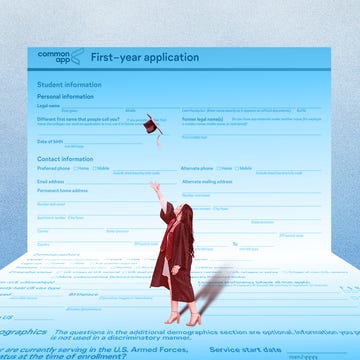
Have College Admissions Returned to Normal Crazy?

Bronx Med School Receives $1 Billion Donation

Are Elite Colleges Really Done with the SATs?
More From Forbes
5 common pitfalls for college letters of recommendation.
- Share to Facebook
- Share to Twitter
- Share to Linkedin
University sign and building
Navigating the college application process can be overwhelming, but one crucial element that can set you apart are compelling letters of recommendation. Here are five common pitfalls to avoid, ensuring you get the best possible endorsements to support your college aspirations.
Not Understanding The Requirements
Before diving into the specifics, it's essential to know what kinds of letters of recommendation are required and acceptable:
- Teacher Recommendations : Most colleges require one or two letters from teachers. These should ideally come from your junior or sophomore year, as these teachers can provide a comprehensive perspective on your growth and capabilities. Also ensure to choose subject teachers that provide relevant insights to your selected major .
- Counselor Recommendations : A letter from your school counselor is often mandatory. This letter typically provides an overview of your academic performance and character. Sometimes, a headmaster or principal’s recommendation may be substituted for the counselor letter where warranted.
- Additional Recommendations : Some colleges allow additional letters from mentors, coaches, or other adults who know you well. Avoid letters from family, friends, or business acquaintances unless they have significant insight into your academic or extracurricular achievements. The best additional recommendation letters tend to come from college professors who have provided you with academic mentorship during high school, showcasing your intellectual vitality .
Choosing The Wrong Recommender
Selecting the right person to write your recommendation letter is crucial. Here are some tips:
- Opt for Junior or Sophomore Year Teachers : These teachers have typically known you long enough to provide a comprehensive perspective on your growth and capabilities. Junior teachers are preferred, but sophomore teachers can be a great choice too.
- Core Subject Teachers : Teachers from core subjects like math, science, history, English, and foreign language are generally more impactful as they can speak to your academic abilities in areas that are critical to most colleges.
Trump Vs. Harris 2024 Polls: Trump Virtually Tied With Harris In HarrisX/Forbes Poll And New WSJ Poll
‘deadpool & wolverine’ shatters box office records, eyes $400 million global opening weekend, wwe smackdown results: winners and grades on july 26, 2024, failing to guide your recommender.
Once you’ve chosen your recommender, it’s essential to guide them on what to include in the letter. Providing them with comprehensive information can help them write a strong and cohesive letter that aligns with your application narrative.
- Share Your Resume and Personal Statement : This gives them a detailed overview of your accomplishments, interests, and goals. It can help them tailor their letter to highlight the aspects of your profile that you want to emphasize.
- Provide Your College and Major List : Inform your recommender about the colleges you are applying to and your intended majors. This allows them to contextualize their recommendation and align their comments with the specific programs and schools.
- Outline Key Points : Clearly communicate the narrative you want to convey. For instance, if you initially planned to pursue business but have now decided on anthropology, make sure your recommender is aware of this shift. This helps avoid any potential confusion for admissions officers and ensures a consistent story.
Lacking Context And Specific Examples
It's not enough to simply ask for a recommendation. You need to help your recommender understand what makes you a strong candidate. Here are some strategies:
- Highlight Specific Achievements : Provide your recommender with a list of your key accomplishments and experiences. This can include projects, papers, presentations, or any other notable work that demonstrates your skills and dedication.
- Share Personal Anecdotes : Personal stories can be powerful. Remind your recommenders of important moments that reflected your character, work ethic, and how you handled challenges. This can help your recommender craft a more personalized and compelling letter.
- Discuss Your Goals : Explain your future aspirations and how the colleges and majors you are applying to align with these goals. This will help your recommender write a letter that supports your long-term vision.
Poor Timing And Follow-Up
Timing is critical when requesting letters of recommendation. Here’s how to manage it effectively:
- Ask Early : Give your recommenders plenty of time to write a thoughtful letter. Ideally, ask them at least two months before the application deadline.
- Provide Deadlines : Clearly communicate the deadlines for each letter of recommendation. This ensures that your recommenders have ample time to complete their letters without feeling rushed.
- Follow Up : Politely follow up with your recommenders to ensure they are on track. A gentle reminder a few weeks before the deadline can be very helpful.
Securing strong letters of recommendation is a vital part of the college application process. By carefully choosing your recommenders and providing them with the necessary guidance and information, you can ensure that their letters effectively support your application and help you stand out to admissions committees.

- Editorial Standards
- Reprints & Permissions
A homecoming tale from a MacArthur ‘genius’ resists tropes of immigrant life

- Copy Link URL Copied!
Book Review
Someone Like Us
By: Dinaw Mengestu Knopf: 272 pages, $28 If you buy books linked on our site, The Times may earn a commission from Bookshop.org , whose fees support independent bookstores.
Across four fine novels, Dinaw Mengestu has challenged conventional wisdom about how immigrant narratives ought to work. It’s not just that he’s skeptical of pat yarns about trauma and assimilating into American life. He strives to use language to reveal the instability at the heart of the lives of exiles, emigres and refugees without falsely promising an easy resolution.
His exploration of slippery selves in a complicated America earned him a MacArthur “genius” grant in 2012 , and gave him entree as a journalist covering Darfur and other troubled regions across the globe. But in “Someone Like Us,” his first novel in a decade, Mengestu subjects that kind of accomplishment to the same level of scrutiny and skepticism. Mamush, the novel’s narrator, is an Ethiopian American writer who specializes in journalism about immigrant lives. A family friend is unimpressed: “You write stories for people who want to feel bad about immigrants.”
As the story opens, Mamush is mourning the death of Samuel, whom he calls his father two pages in. But Mamush’s mother has never confirmed Samuel’s fatherhood, just that she knew him in Ethiopia.
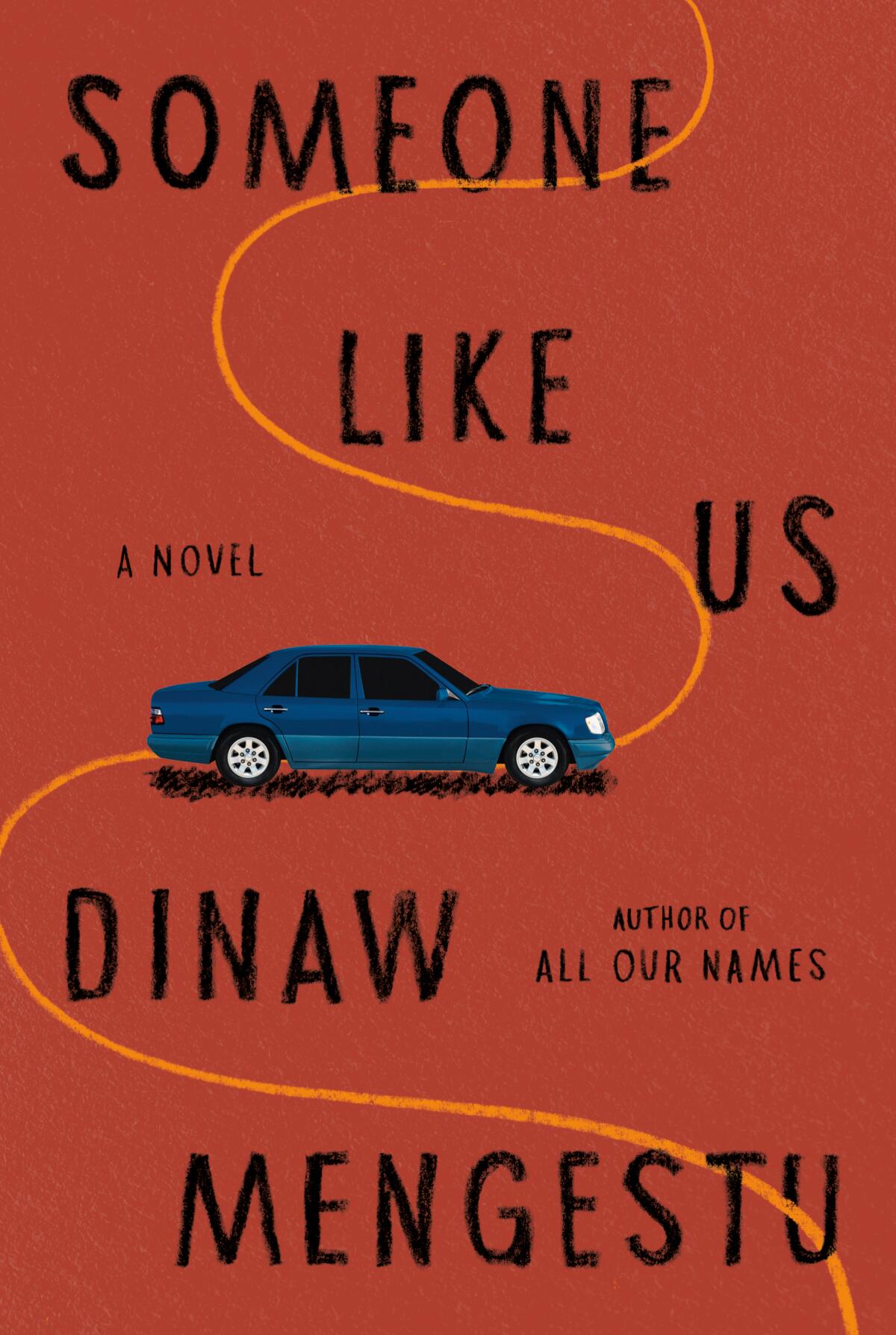
Upon learning that Samuel was deathly ill (of what, we’re not certain), Mamush had hastily left his family in Paris and flown to the Washington, D.C., suburbs where he grew up. Then, to untangle the mystery of his origins, he had gone to Chicago, where his mother and Samuel first settled. He inherited stories about Samuel’s run-ins with racist cops and that he “spent some time in prison, but I don’t know what for.” Mamush hoped his journalism chops could uncover the truth, but he comes up empty at the courthouse: The arrest records are sealed, and while he was searching, Samuel died.
All of that information is carefully dispersed across Mamush’s narration, which flickers between truthful chronicling and imagined realities, each sinuously flowing from one to the other. Mamush occupies a world where things constantly seem to be neither here nor there. Hannah, his wife, is a photographer who’s been assigned to shoot “semi-ruins… buildings that haven’t collapsed but probably will soon.” As Mamush waits in line at the courthouse on a frigid day in Chicago, a woman offers him a scarf, but he “wanted to tell her that I didn’t need protection from the cold, that what she saw was a shadow version of me; my real self was hundreds of miles away in the suburbs of northern Virginia.”
The rift in a clear reality is most pronounced when it comes to Samuel. “Today you say you’re like a father to me,” Mamush tells him once. “But maybe tomorrow you’re like a distant cousin I’ve only met twice. Similes can change. They can be revised, edited.” His understanding of Samuel is pieced together from scraps of memories and documents, but he’s in a family that holds memory in contempt. When in college he requested his mother’s help writing an essay about childhood memories, she sardonically asked if she could get a tuition refund.

10 books to add to your reading list in July
Critic Bethanne Patrick recommends 10 promising titles — fiction and nonfiction — to consider for your July reading list.
July 3, 2024
So how do you write a story about fathers and sons when fatherhood is questioned, or nonexistent, and every story you could tell would feel like the most trite and obvious one? Throughout “Someone Like Us,” you can feel Mengestu’s determination to avoid falling into familiar immigrant narrative tropes. Samuel’s experience with racism is maddening but nothing cataclysmic; Mamush shares little about his family’s past in war-torn Ethiopia, and less about Samuel’s prison stint. Straightforward reporting is impossible for him: Mamush irritatedly recalls an editor who kicked a story back to him, saying that what he filed had “nothing to do with the story you were supposed to write. Where’s the portrait? What is the conflict? And why should people care?”
The kind of anti-characterization that Mengestu plays with here is risky. Rather than merely feeling disassociated, Mamush courts featurelessness. (“You’re like a donut,” a friend tells him. “There’s a hole in the middle, where something solid should be.”) Rather than become a tragic, mysterious father figure, Samuel could end up just a bundle of confusions that resist interpretation — Schrodinger’s dad.
But Mengestu’s solution is a sharp one: He makes the urge to craft a coherent story something of a character in itself, revealing how desperate we are to contrive narratives from scattered parts. In the closing chapters, Mengestu concocts a kind of fantasia out of this instinct, building an imagined story about Samuel from the available evidence, shaped by Mamush’s own uncertain yearnings.
In the process, Mengestu gets to have it both ways, telling an immigrant narrative while also critiquing it. He encompasses the feelings of loss and detachment that Mamush deals with, while recognizing that there’s no clear path from point A to point B. In that regard, he is his maybe-father’s son: As Mamush is a roving journalist, Samuel was a cab driver. This quietly affecting novel captures the uncertainty that comes with statelessness and rootlessness.
At one point, Mamush describes his ambition to write a story “about one group of people in one place at one time, who move to another place at another time for a hundred different reasons we can never explain, and which we can never fully comprehend …. There’s no plot.” It seems an impossible task. But in Mengestu’s hands, plotlessness and incomprehension never seemed so essential to getting the story right.
Mark Athitakis is a writer in Phoenix and author of “The New Midwest.”
More to Read

How a disillusioned Nigerian man’s trek to Europe becomes a test of faith and ambition
June 29, 2024

Claire Messud mixes truth and invention to tell her French Algerian family’s story
May 10, 2024

A disorienting, masterful, shape-shifting novel about multiracial identity
April 22, 2024
A cure for the common opinion
Get thought-provoking perspectives with our weekly newsletter.
You may occasionally receive promotional content from the Los Angeles Times.
More From the Los Angeles Times

The summer of ’82 changed sci-fi cinema forever
July 24, 2024

A blind horse, a beaten-down musician and a journey out of despair
July 22, 2024

How California’s weather — weird, wonderful, catastrophic — shapes the state and its people
July 19, 2024

A novel co-written by Keanu Reeves is actually great (and just waiting to be adapted into his next flick)
July 17, 2024

COMMENTS
4. Don't just tell the reader what you think. Tell the reader what you did, how you felt, how you changed—not just what you think. Admissions officers don't want to read about what you think in the abstract.
College admissions officers have their own preferences when it comes to essays, but they all tend to agree on what they dislike. It can be disheartening to think that you can't guarantee a perfect essay, but avoiding certain mistakes will increase your chances of success.
What makes a good college essay? This is a common question among high school seniors during the application process. A successful college essay captivates admissions officers and reveals the student's identity and personality, creating a vivid picture that extends beyond grades and test scores, ultimately compelling the reader to advocate for the student's admission.
Great college essays aren't built on a formula, but there are a handful of things that every strong essay has and a bigger handful of things that it most certainly does not. For rising Seniors getting ready to write their essay, it's crucial that they know what to emphasize and what to avoid. When i
The perfect college essay demonstrates your growth, character, and fit with the school. To drive the point home, choose an essay topic that has proven results.Before you start brainstorming, know there are many college essay topics to avoid altogether.
It's important to know which college essay topics to avoid. Learn about the college essay topics to help you stand out from the competition.
If you really, really want to try to make a cliche topic work. So far, we have focused on very specific essay topics you should steer clear of. However, there are many students who gain admission to their dream colleges every year by using these topics.
College essays are an important part of your college application and give you the chance to show colleges and universities your personality. This guide will give you tips on how to write an effective college essay.
When writing your college essays, it's crucial to make sure your essay stands out and reflects your unique voice. Here are some things to avoid and tips for writing a strong essay: 1. Cliché topics: Avoid topics that have been widely written about, such as sports injuries, moving to a new place, learning a new language as an immigrant, or overcoming a challenging class.
Hello! It's great that you're thinking about what to avoid in your college essay. There are definitely some topics and writing styles to steer clear of to make your essay strong. Here are a few tips: 1. Avoid clichés and overused topics, like a sports injury, mission trips, or the 'big game.' Admissions officers read thousands of essays, so try to pick a unique and personal topic that will ...
A good editor's favorite punctuation mark. What Kind of Editing Should You Avoid? Bad editing is usually very heavy-handed editing. Instead of helping you find your best voice and ideas, a bad editor changes your writing into their own vision.
What you Should Avoid 1. Contractions. Contractions may seem informal or lazy to the reader. Take the time to write the full phrase out. NO: It's been a journey. YES: It has been a journey.
What makes a good college essay? It's a question many high school seniors ask while going through the application process. A winning college essay engages admissions officers and shares with them the student's identity and personality, painting a picture that goes beyond grades and test scores—compelling the reader to become an advocate for the student's admission.
College deadlines vary depending on the schools you're applying to and your application plan:. For early action applications and the first round of early decision applications, the deadline is on November 1 or 15. Decisions are released by mid-December. For the second round of early decision applications, the deadline is January 1 or 15. Decisions are released in January or February.
It's understandable that you want to write an outstanding college essay that stands out among the rest! Here are some common topics that you should avoid or approach cautiously when putting together your essay: 1. Cliché topics: This includes stories about sports injuries or victories, adjusting to a new school, first-generation immigration experiences, or overcoming challenging academic ...
In many ways, the most labor-intensive part of your college application process is the essay. It's not just about forwarding transcripts or entering a list of extracurricular activities—you have to craft something personal and compelling to show the admissions committee who you are beyond your resume.
Just as there are noteworthy examples of excellent college essays that admissions offices like to publish, so are there cringe-worthy examples of terrible college essays that end up being described by anonymous admissions officers on Reddit discussion boards.. While I won't guarantee that your essay will end up in the first category, I will say that you follow my advice in this article, your ...
A pplying to college is a multi-pronged process that culminates with a component that high school seniors tend to both dread and procrastinate. Hint: it's the college admissions essay. It's true, you can save yourself some time and stress by simply reusing an essay that you wrote for school. However, with the pressure to position yourself uniquely and make a case for your admission, most ...
The essay is easily one of the most difficult parts of the college application process. How can someone describe themselves in such a short amount of space, especially when all their accomplishments are listed on the page before and they don't want to sound repetitive?
5. Inflammatory topics. It's unwise to write about politics or religion, two of the most polarizing topics. Avoid any topics that make people angry.
Should I title my college essay? You don't need one. In the vast majority of cases, students we work with don't use titles. The handful of times they have, they've done so because the title allows for a subtle play on words or reframing of the essay as a whole.
Tackling the essay can feel overwhelming, but taking the process seriously can have benefits that extend far beyond college admissions. When students take the time to look inward and capture a ...
Option 1: Return to the beginning. Many successful essays follow a "sandwich," or full-circle, structure, meaning that they start with some image or idea, veer away from it in the middle, and then return to it at the end. This structure is clean, self-contained, and satisfying for readers, so it's a great choice if it works with the topic you've chosen.
What Not to Write About in a College Essay . By Austin Kilham · March 08, 2024 · 8 minute read We're here to help! First and foremost, SoFi Learn strives to be a beneficial resource to you as you navigate your financial journey.
Do not cheat. That means students should not turn to ChatGPT or to another person to write their essay. This should go without saying but, sadly, it does need to be said. College admissions ...
Discover how to avoid common pitfalls in college application essays. Learn from experts about crafting authentic narratives that improve your chances of admission.
We get it. College applications are stressful. From whether to submit test scores to what to write about the in essay, the process is complicated. We spoke to an admissions expert about some of ...
Standardized tests and undergraduate grades have long been decisive factors in law school admissions, because they simplify comparisons between applicants and are statistically proven predictors ...
University sign and building. getty. Navigating the college application process can be overwhelming, but one crucial element that can set you apart are compelling letters of recommendation.
In "Someone Like Us," his first novel in a decade, Dinaw Mengestu strives to reveal the instability that follows exiles, emigres and refugees without falsely promising an easy resolution.